The Column
Explore GTM Playbooks, our latest announcements, and thought leadership.
FEATURED
Claude Code for GTM Engineers: The Practical Guide to Building Campaigns in 2026
How GTM engineers can save time and boost accuracy with Claude Code
Jan, February 25, 2026

Fresh off the Column
Show more

Claude Code for GTM Engineers: The Practical Guide to Building Campaigns in 2026
How GTM engineers can save time and boost accuracy with Claude Code
by Jan, February 25, 2026
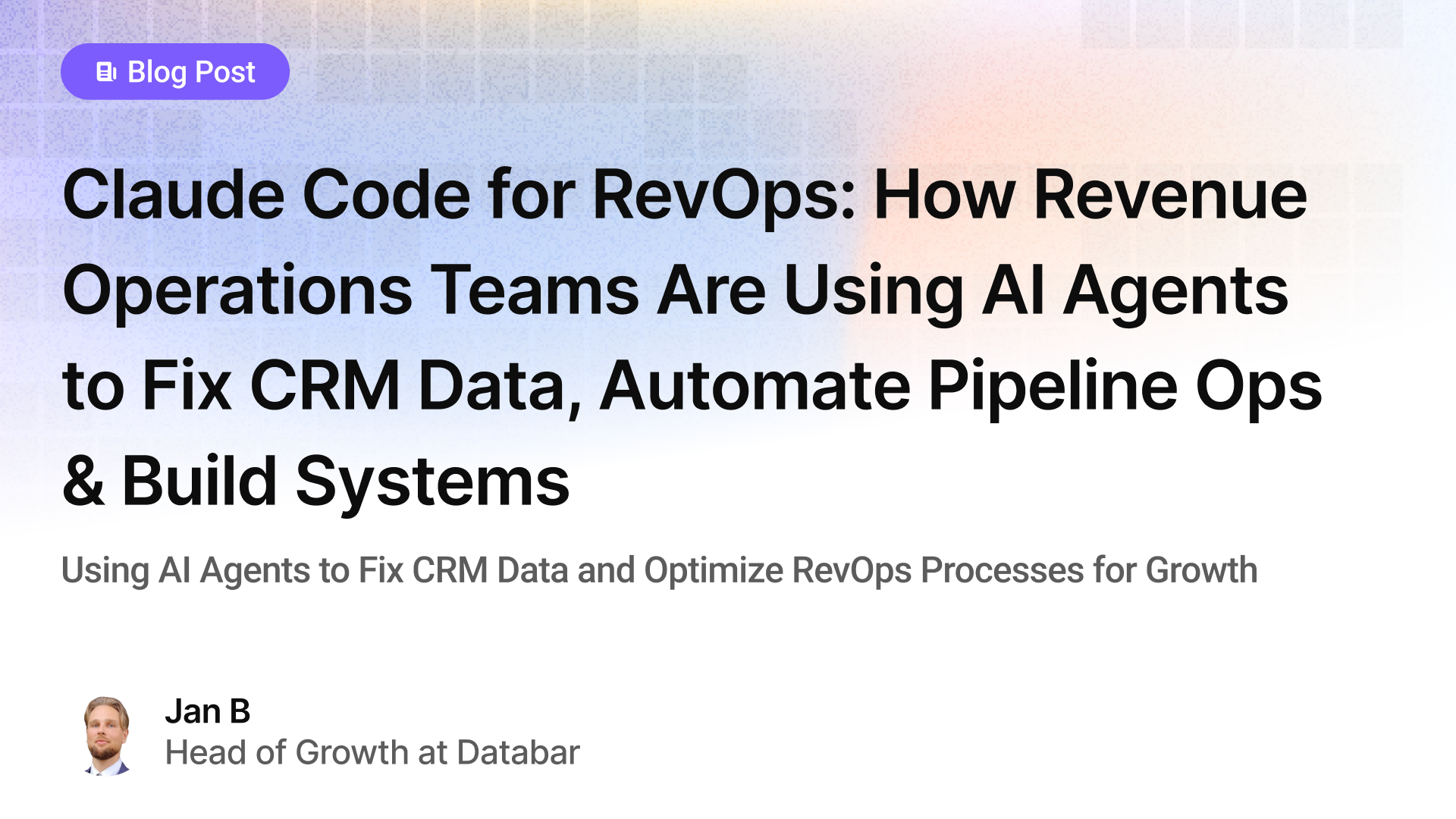
Claude Code for RevOps: How Revenue Operations Teams Are Using AI Agents to Fix CRM Data, Automate Pipeline Ops & Build Systems
Using AI Agents to Fix CRM Data and Streamline Revenue Operations for Scalable Growth
by Jan, February 24, 2026
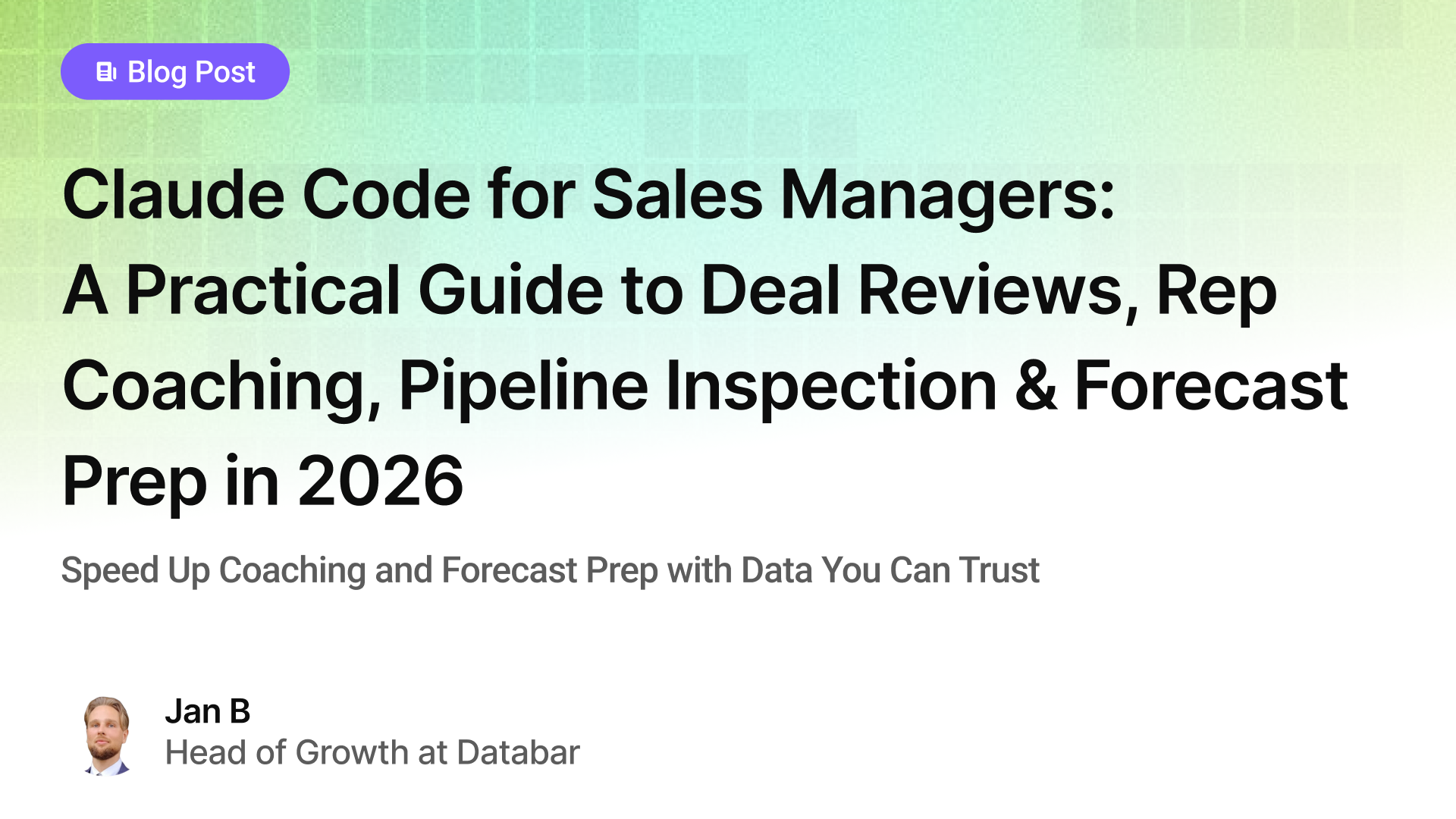
Claude Code for Sales Managers: A Practical Guide to Deal Reviews, Rep Coaching, Pipeline Inspection, and Forecast Prep in 2026
Speed Up Coaching and Forecast Prep with Data You Can Trust
by Jan, February 23, 2026
Playbooks & Inspiration
See all
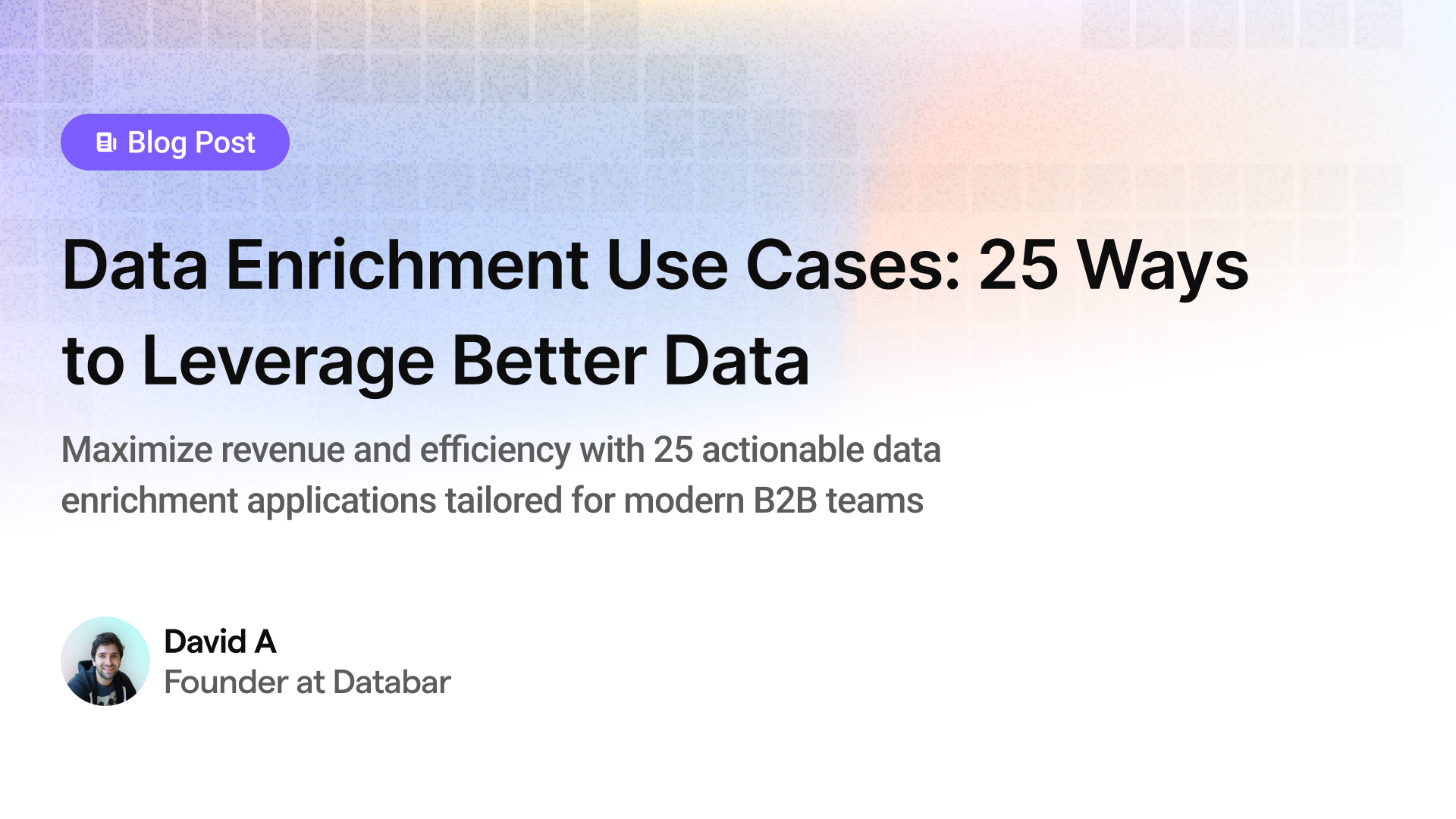
Data Enrichment Use Cases: 25 Ways to Leverage Better Data
Maximize revenue and efficiency with 25 actionable data enrichment applications tailored for modern B2B teams.
by Jan, June 29, 2025
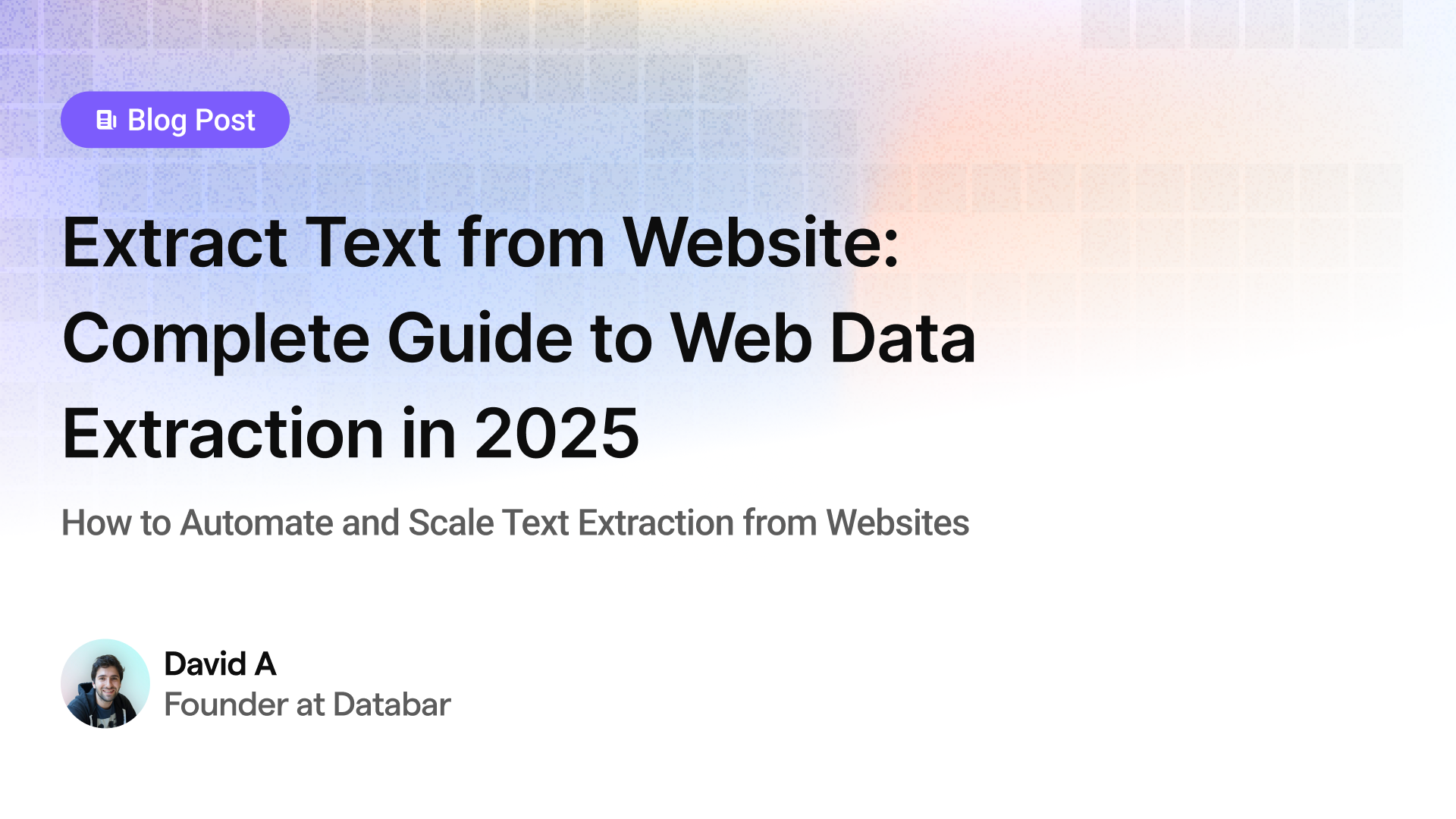
Extract Text from Website: Complete Guide to Web Data Extraction in 2025
How to Automate and Scale Text Extraction from Websites for Business Success
by Jan, June 24, 2025
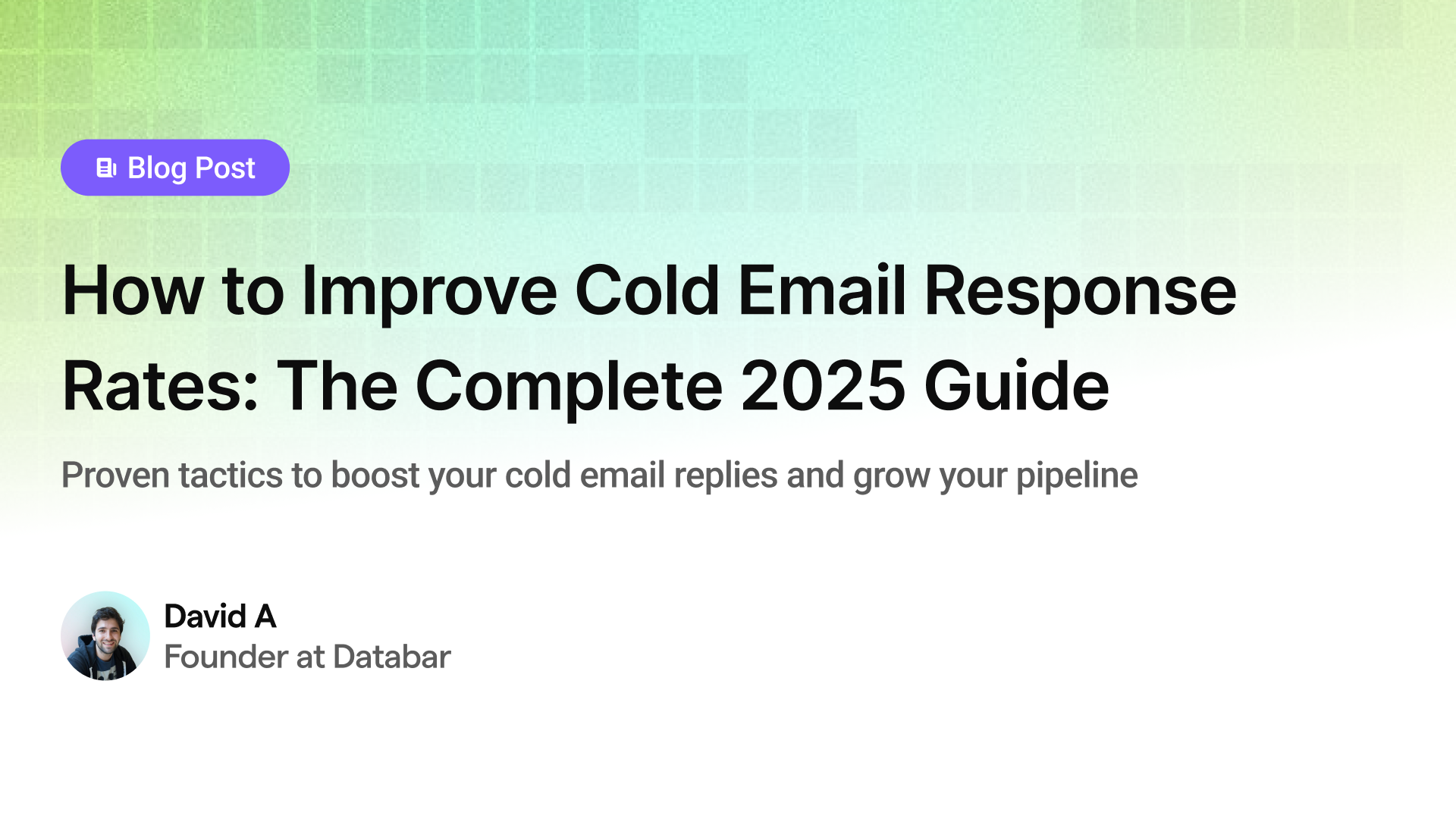
How to Improve Cold Email Response Rates: The Complete 2025 Guide
Proven tactics to boost your cold email replies and grow your pipeline
by Jan, June 09, 2025
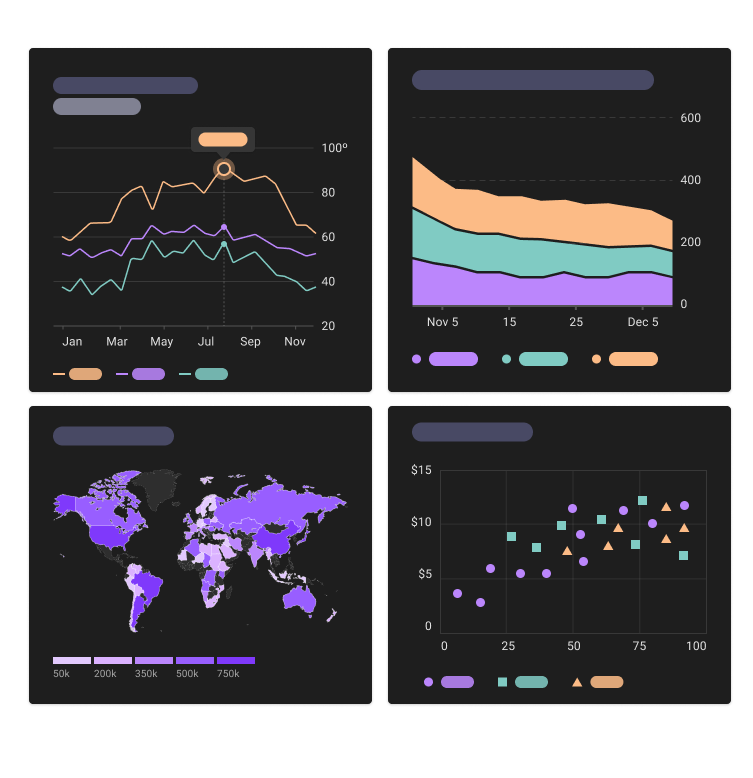
How to create charts and maps with live data and no code
Create live models of your data with interactive charts and maps.
by Databar, January 22, 2023
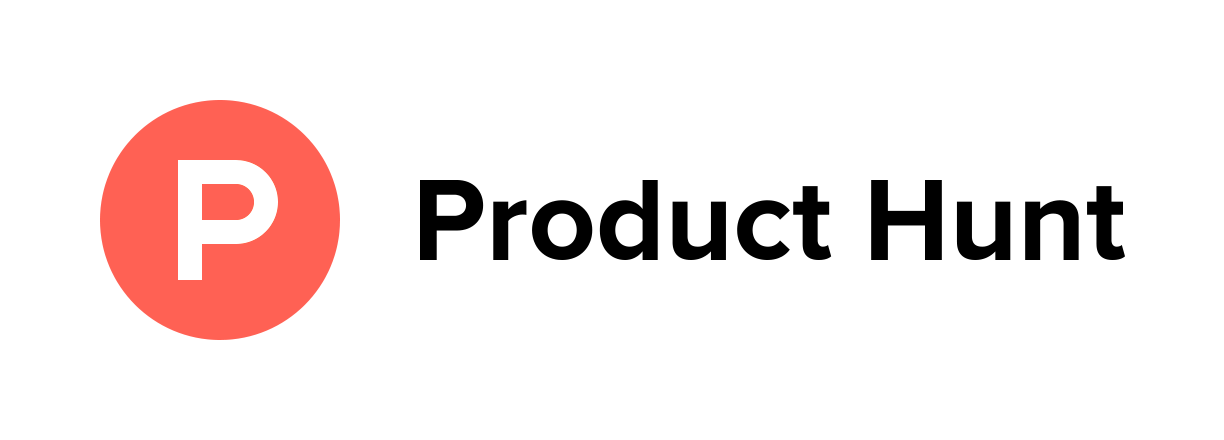
Should you launch on Product Hunt during the holidays?
We analyzed historic Product Hunt launches to find out if it's a good idea to launch during the holidays. Here's what we found.
by Databar, January 04, 2023
Customer Success Stories
See all

How Pearl Lemon Cut Data Analysis Time by 60% and Improved Client Reporting with Databar
Digital marketing agency eliminates data chaos and accelerates campaign optimization across global operations
by Jan, August 26, 2025
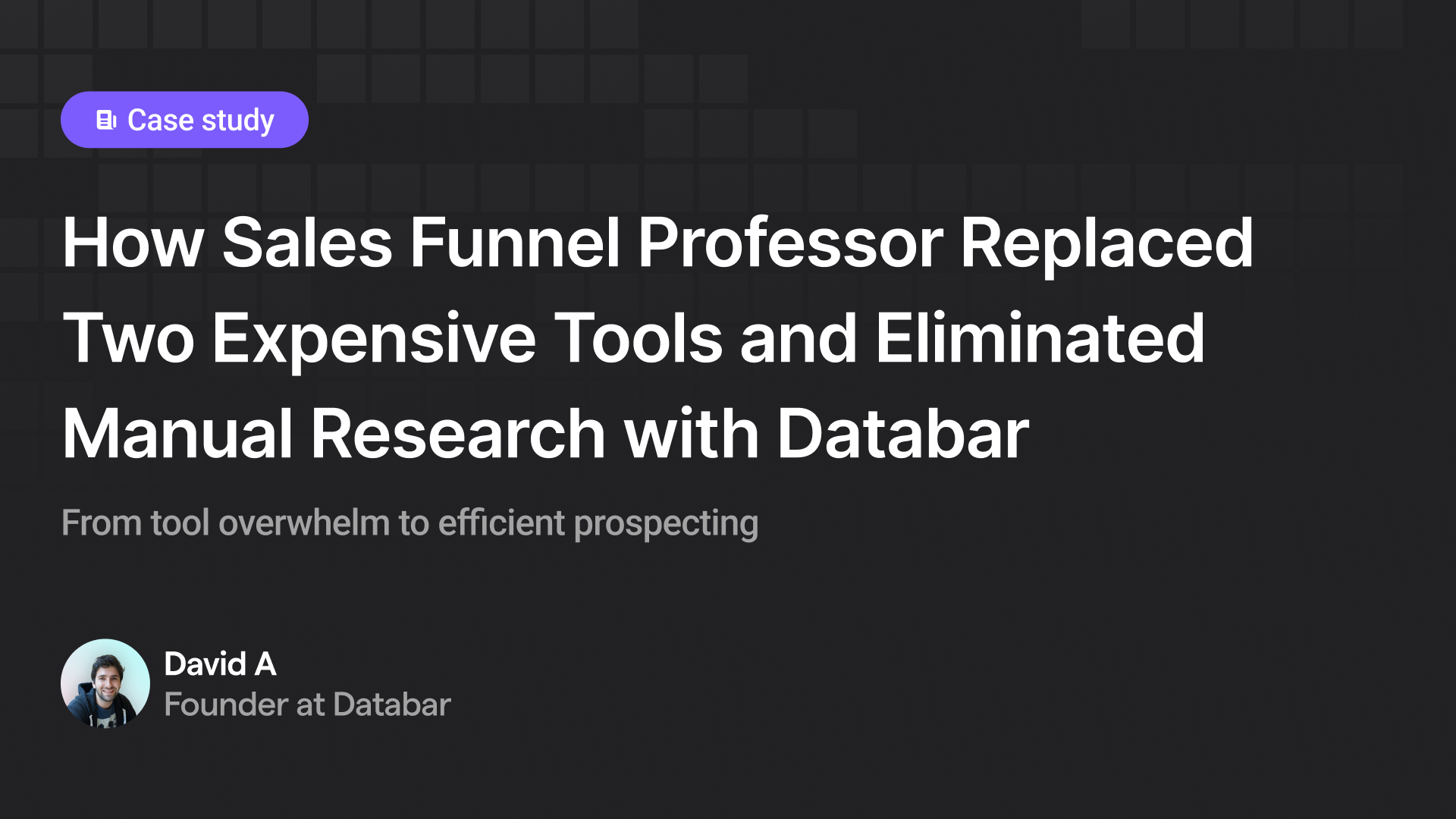
How Sales Funnel Professor Replaced Two Expensive Tools and Eliminated Manual Research with Databar
From tool overwhelm to efficient prospecting: How one consulting firm automated high-value workflows
by Jan, July 01, 2025
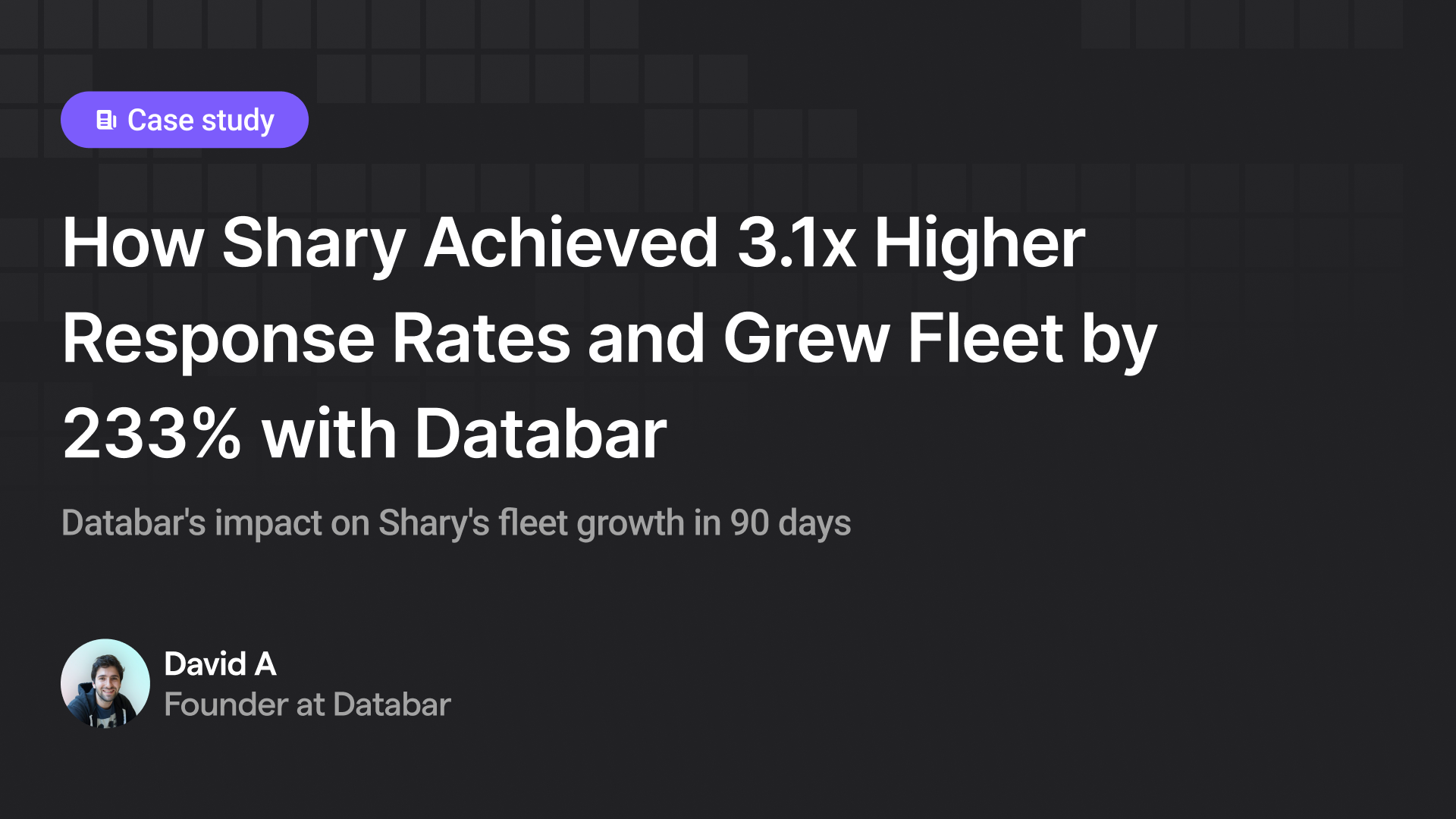
How Shary Achieved 3.1x Higher Response Rates and Grew Fleet by 233% with Databar
Databar's impact on Shary's fleet growth in 90 days
by Jan, December 06, 2024
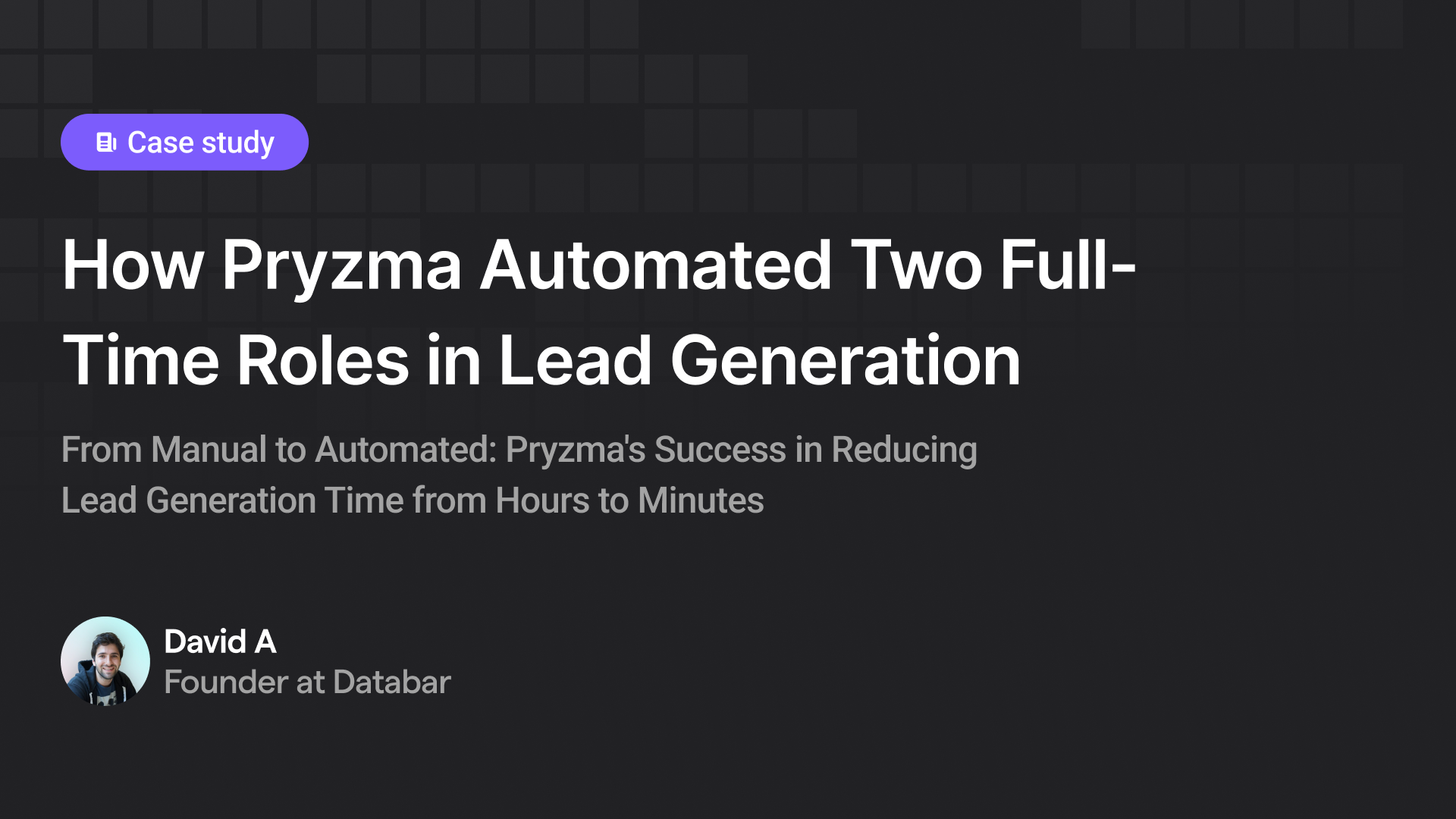
How Pryzma Automated Two Full-Time Roles in Lead Generation
From Manual to Automated: Pryzma's Success in Reducing Lead Generation Time from Hours to Minutes.
by Jan, December 03, 2024
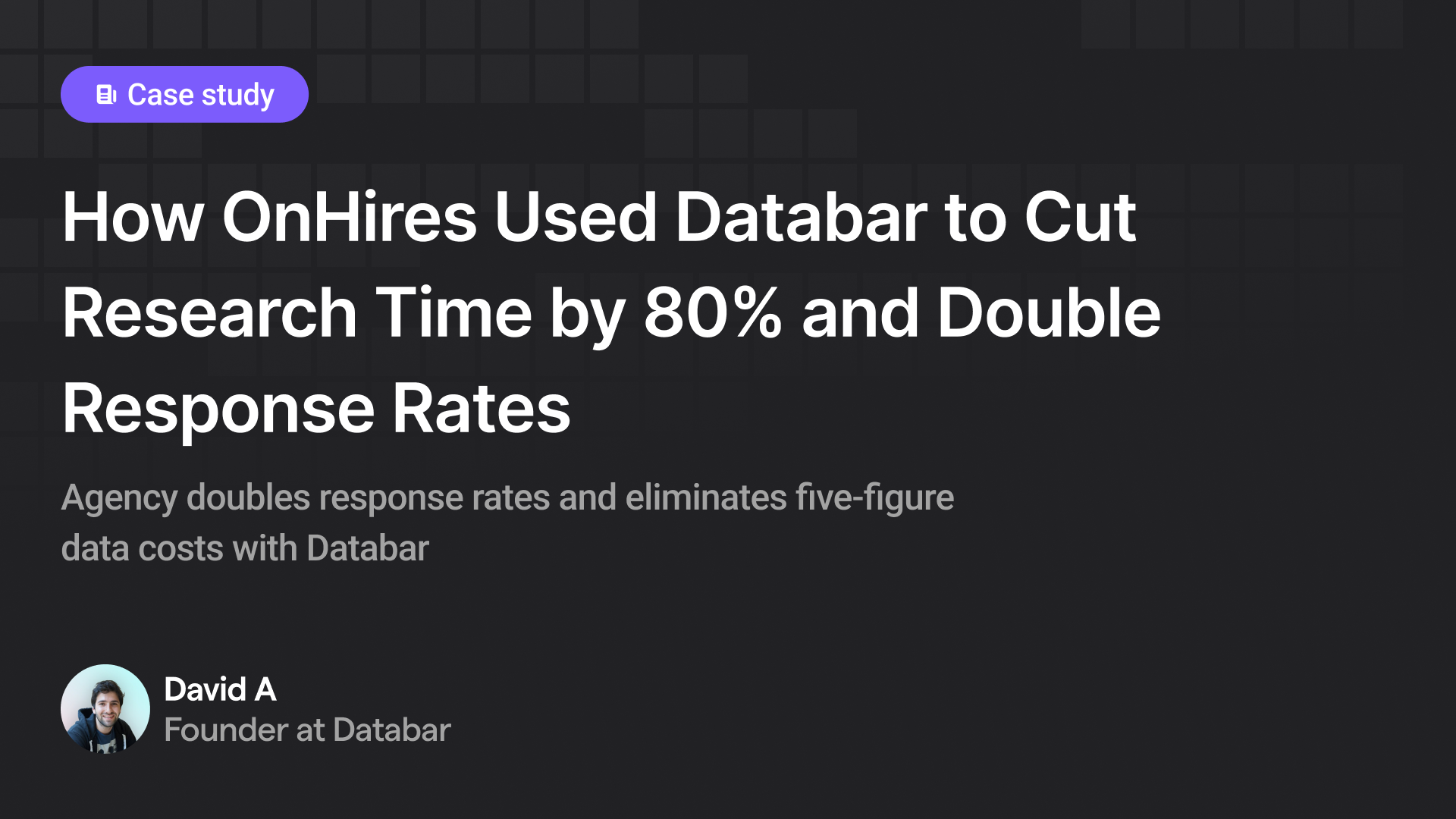
How OnHires Used Databar to Cut Research Time by 80% and Double Response Rates
Agency doubles response rates and eliminates five-figure data costs with Databar
by Jan, November 25, 2024
Announcements & Product Updates
See all

Fueling AI Workflows with Best-in-Class Data: Databar.ai Partners with BuyerCaddy
Access tech stack data in under 3 clicks
by Jan, September 04, 2025

Clean Email Lists Made Simple: Databar.ai Partners with ZeroBounce
Professional email validation made simple through native Zerobounce integration
by Jan, August 26, 2025
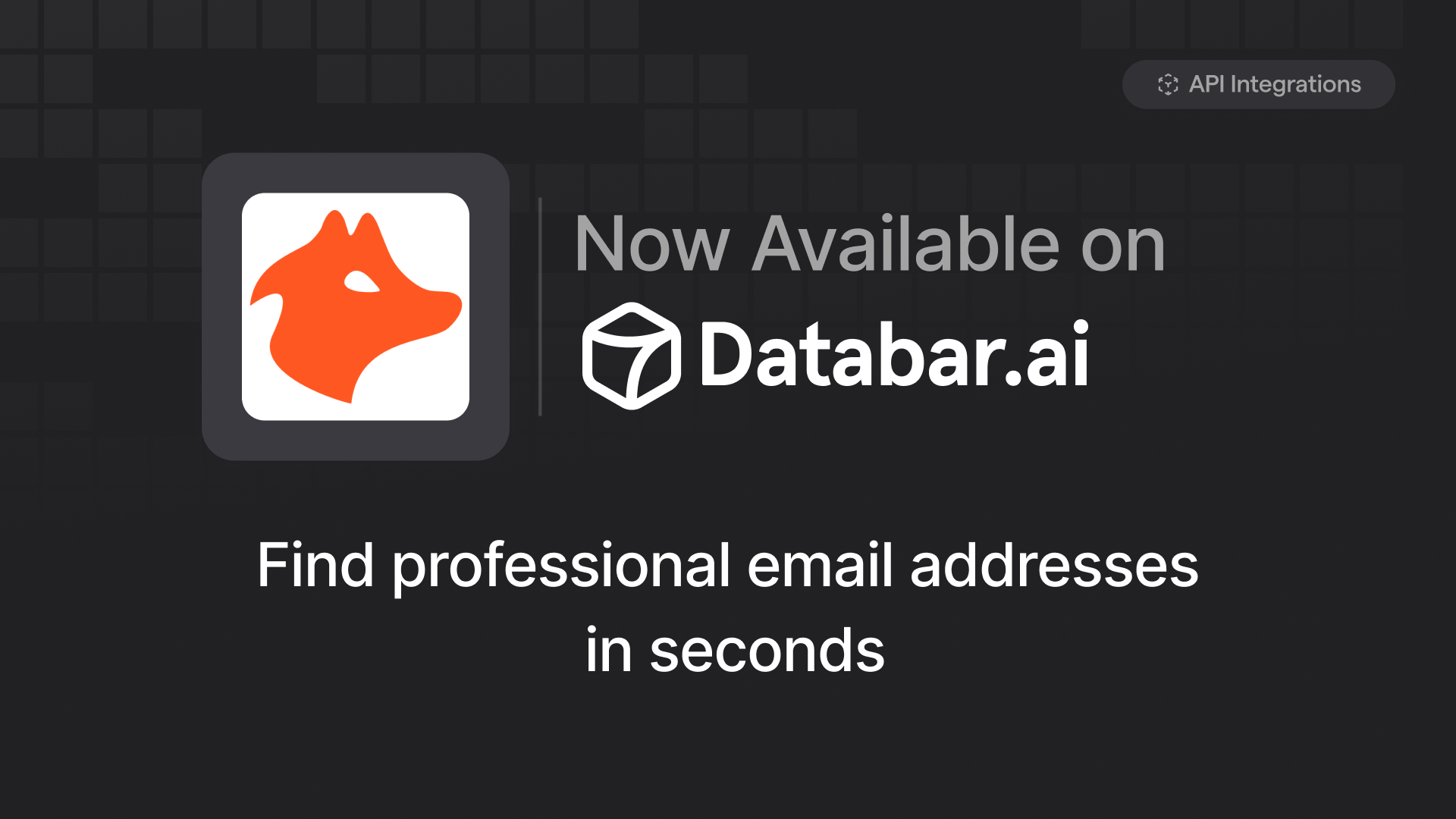
Databar.ai and Hunter.io: Finding Email Addresses Just Got 10x Faster
Access professional email addresses and company data with our new Hunter.io integration
by Jan, July 30, 2025
All Posts from The Column

Claude Code for GTM Engineers: The Practical Guide to Building Campaigns in 2026
How GTM engineers can save time and boost accuracy with Claude Code
by Jan, February 25, 2026

Claude Code for RevOps: How Revenue Operations Teams Are Using AI Agents to Fix CRM Data, Automate Pipeline Ops & Build Systems
Using AI Agents to Fix CRM Data and Streamline Revenue Operations for Scalable Growth
by Jan, February 24, 2026

Claude Code for Sales Managers: A Practical Guide to Deal Reviews, Rep Coaching, Pipeline Inspection, and Forecast Prep in 2026
Speed Up Coaching and Forecast Prep with Data You Can Trust
by Jan, February 23, 2026
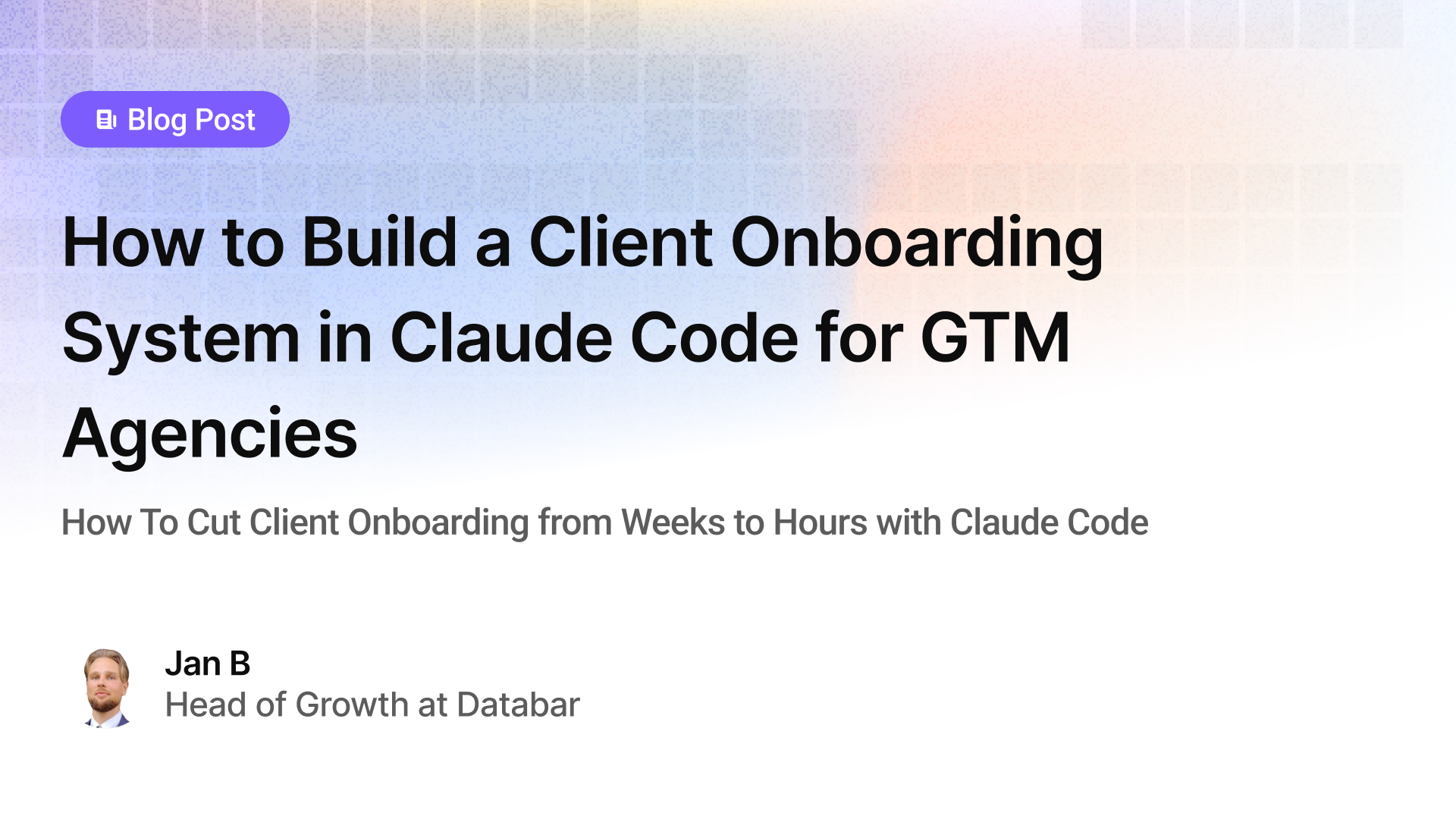
How to Build a Client Onboarding System in Claude Code for GTM Agencies
How To Cut Client Onboarding from Weeks to Hours with Claude Code
by Jan, February 22, 2026
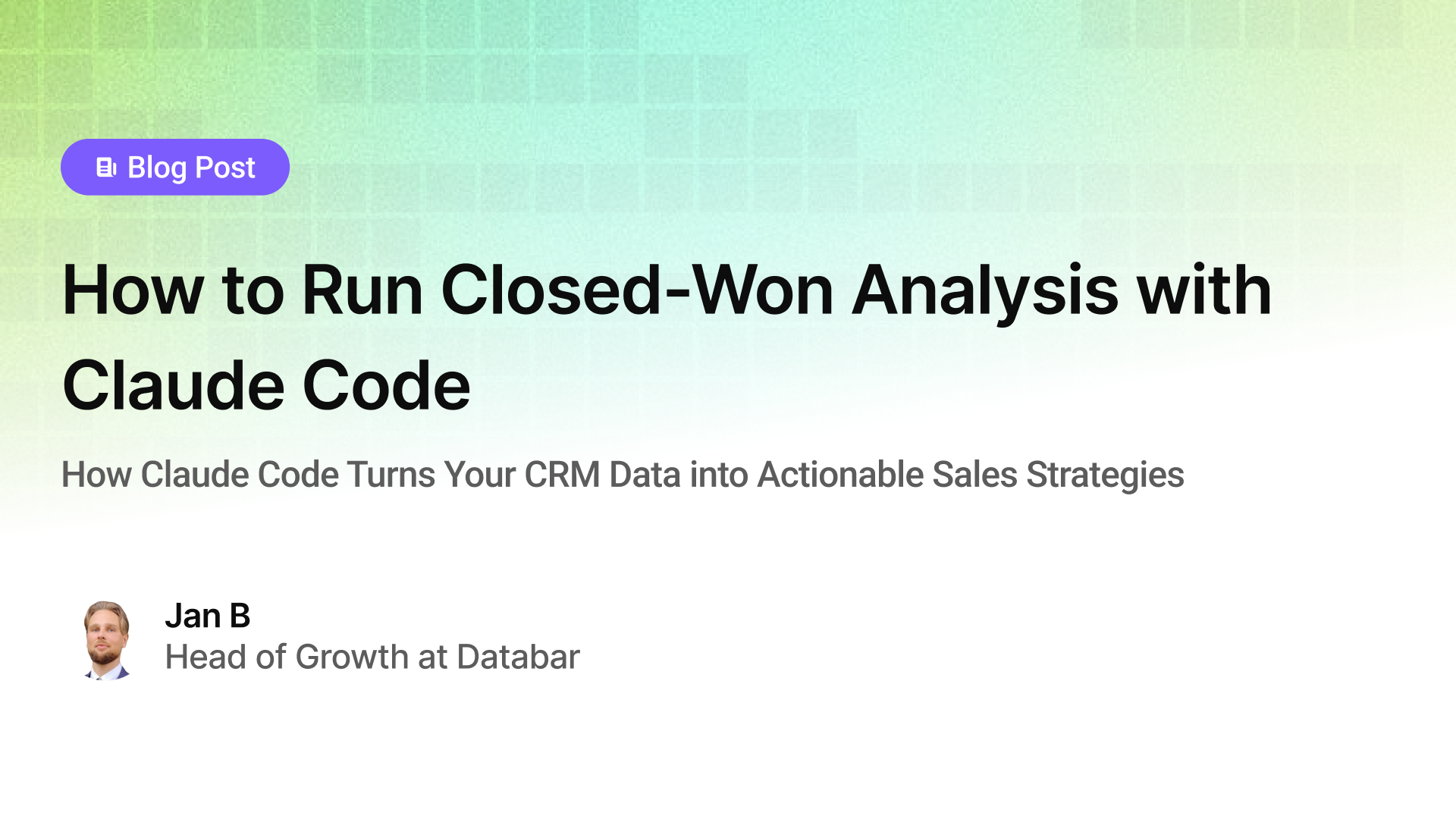
How to Run Closed-Won Analysis with Claude Code
How Claude Code Turns Your CRM Data into Actionable Sales Strategies
by Jan, February 21, 2026
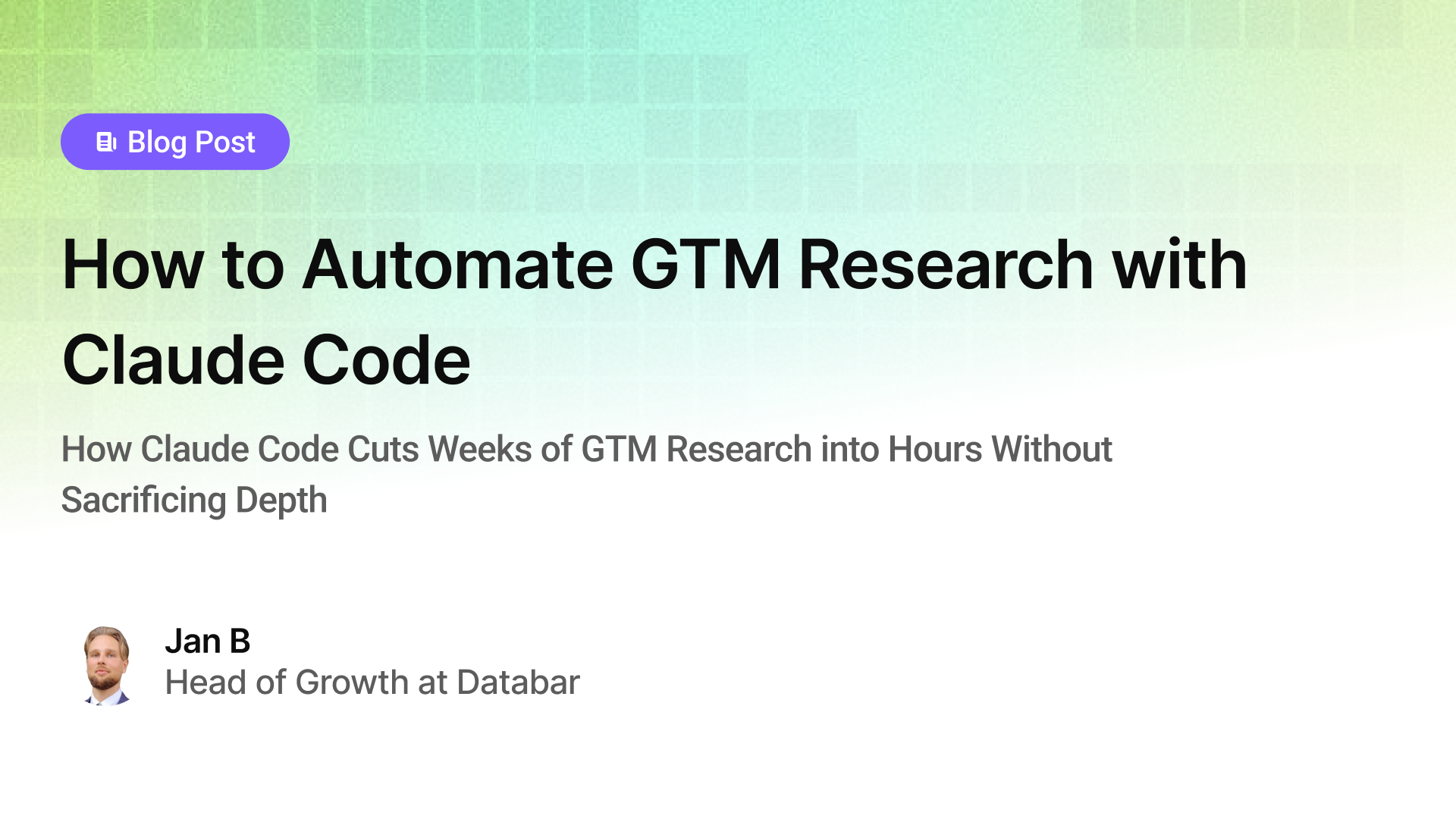
How to Automate GTM Research with Claude Code
How Claude Code Cuts Weeks of GTM Research into Hours Without Sacrificing Depth
by Jan, February 20, 2026
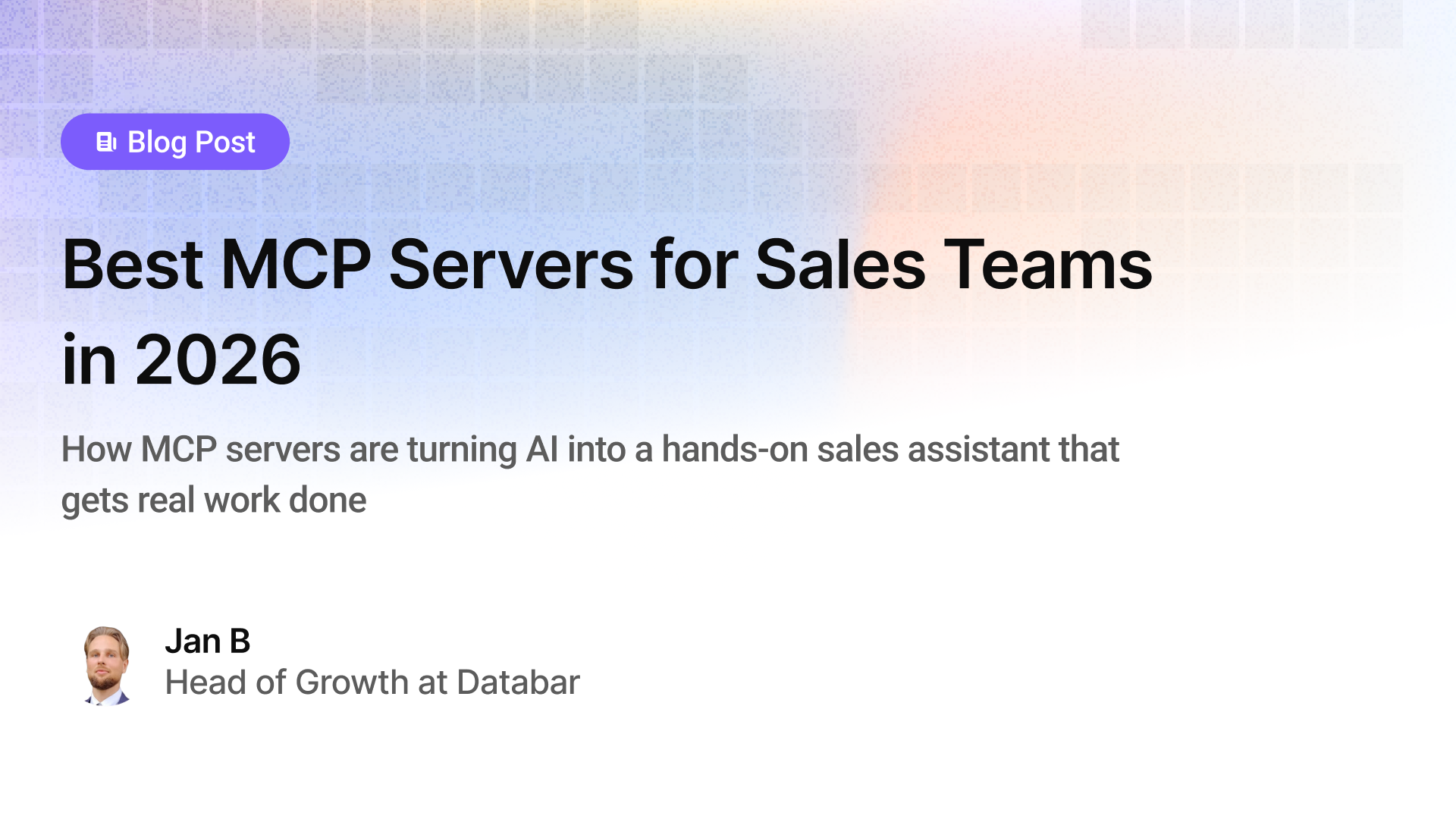
Best MCP Servers for Sales Teams in 2026
How MCP servers are turning AI into a hands-on sales assistant that gets real work done
by Jan, February 20, 2026
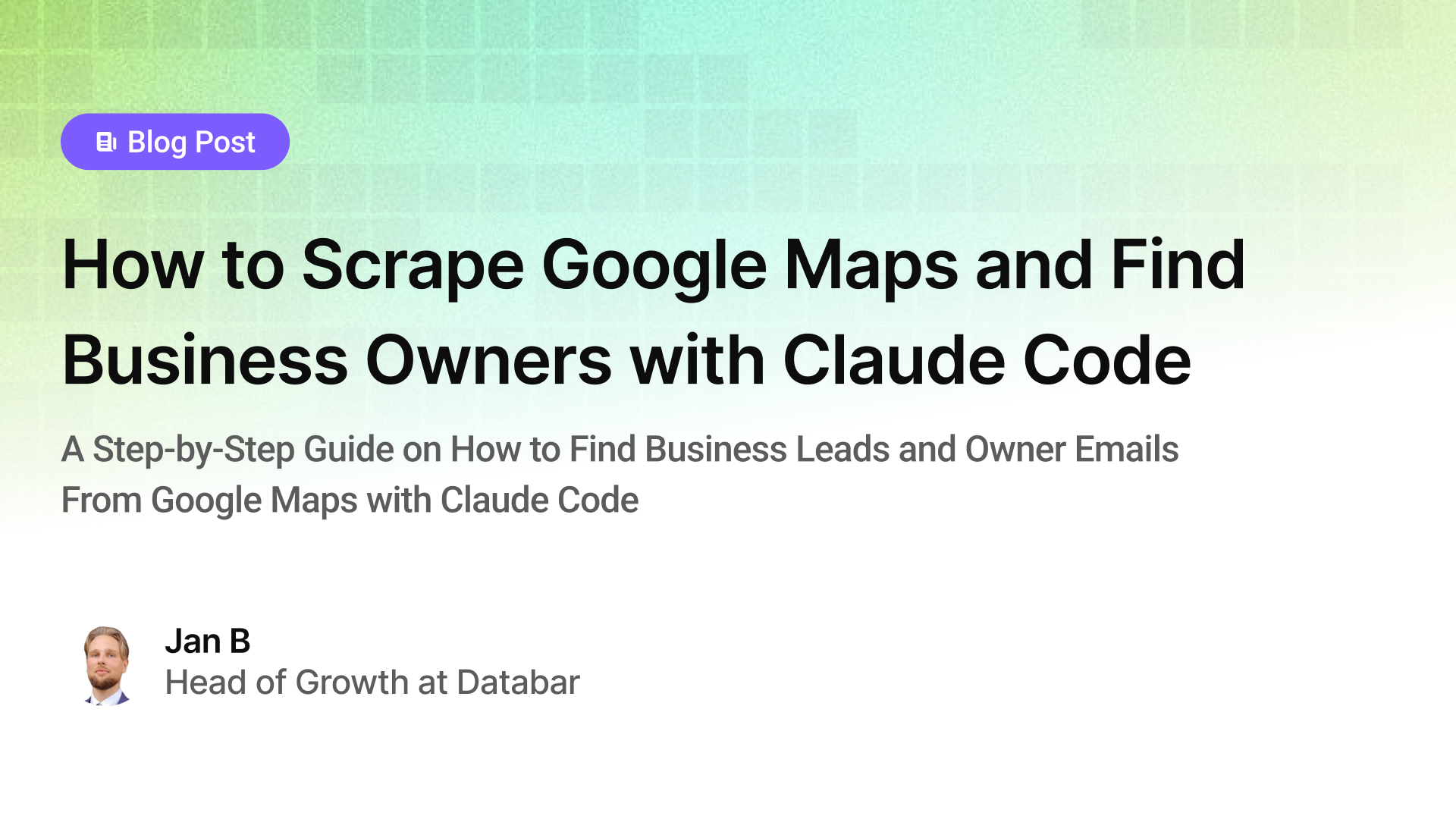
How to Scrape Google Maps and Find Business Owners with Claude Code
A Step-by-Step Guide on How to Find Business Leads and Owner Emails From Google Maps with Claude Code
by Jan, February 19, 2026
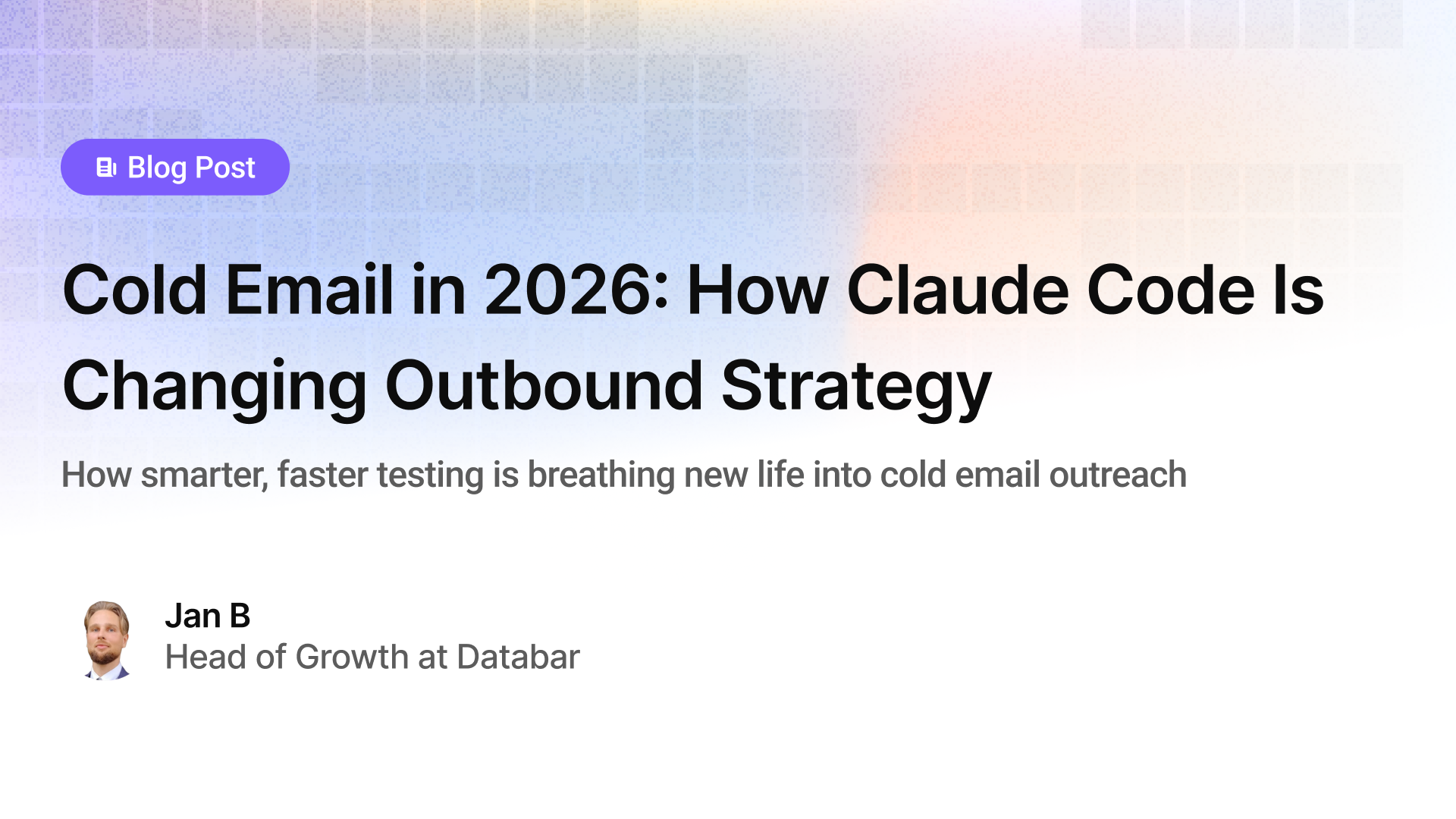
Cold Email in 2026: How Claude Code Is Changing Outbound Strategy
How smarter, faster testing is breathing new life into cold email outreach
by Jan, February 18, 2026
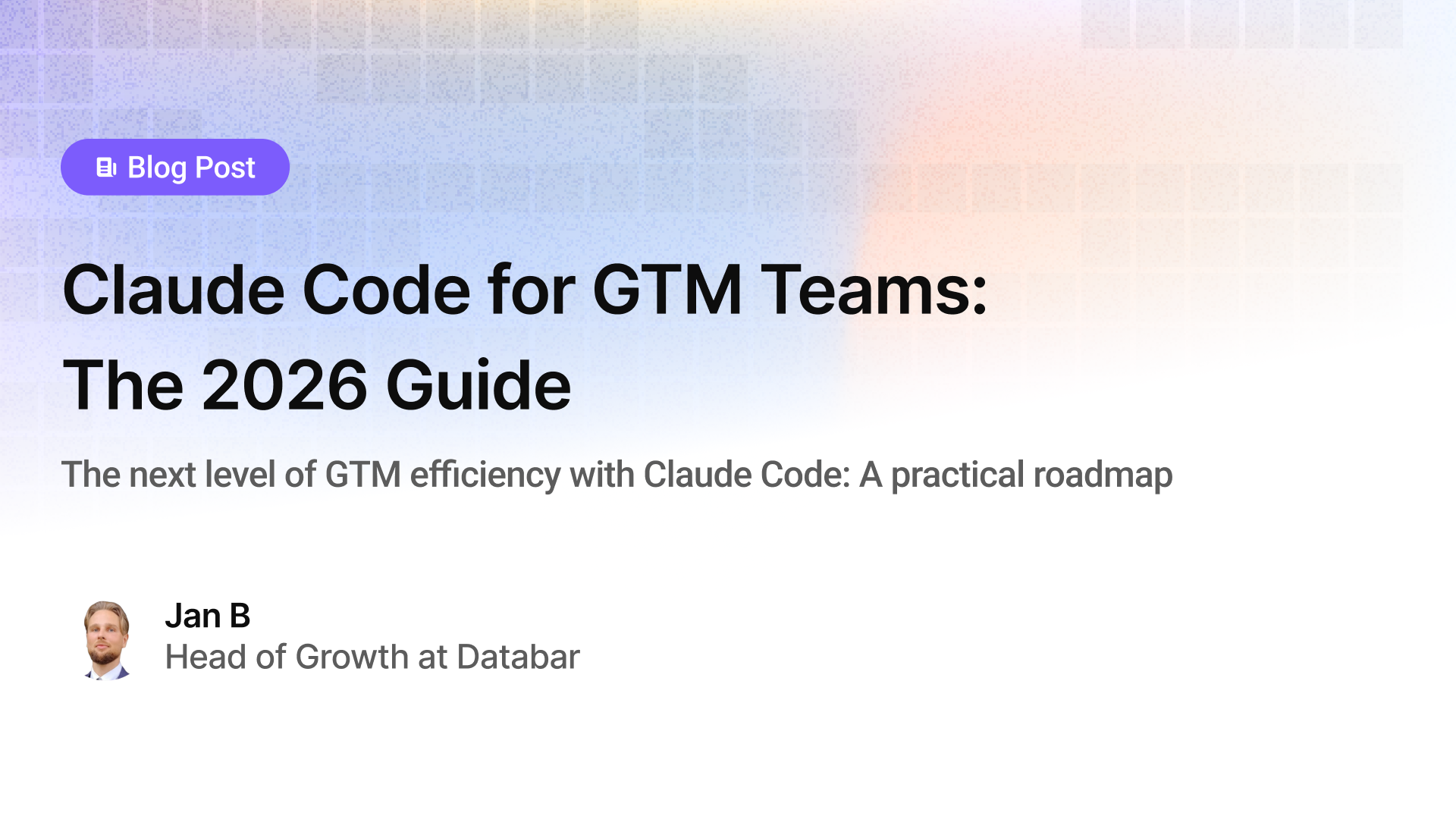
Claude Code for GTM Teams: The 2026 Guide
The next level of GTM efficiency with Claude Code: A practical roadmap
by Jan, February 17, 2026
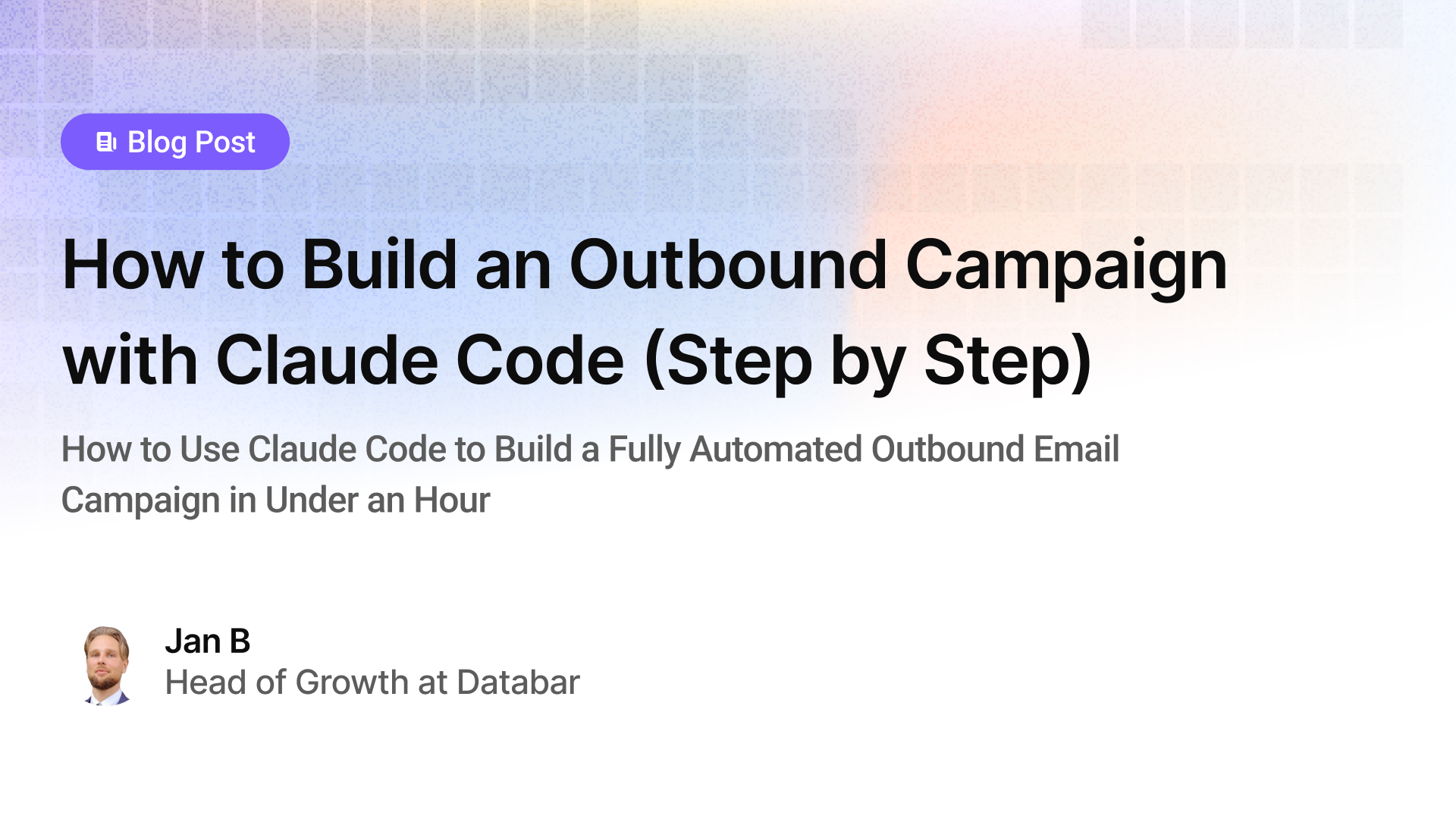
How to Build an Outbound Campaign with Claude Code (Step by Step)
How to Use Claude Code to Build a Fully Automated Outbound Email Campaign in Under an Hour
by Jan, February 17, 2026
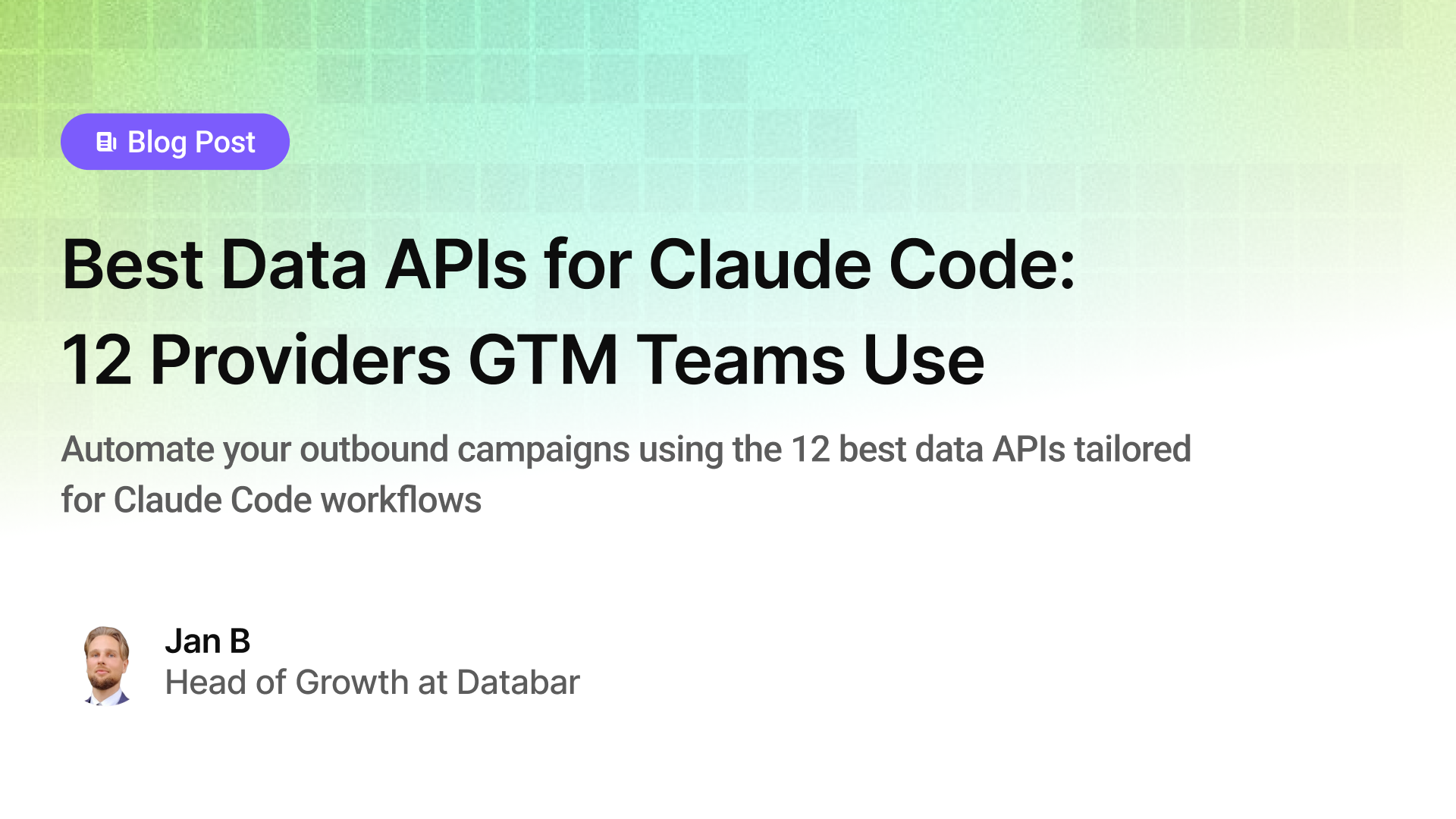
Best Data APIs for Claude Code: 12 Providers GTM Teams Use
Automate your outbound campaigns using the 12 best data APIs tailored for Claude Code workflows
by Jan, February 17, 2026
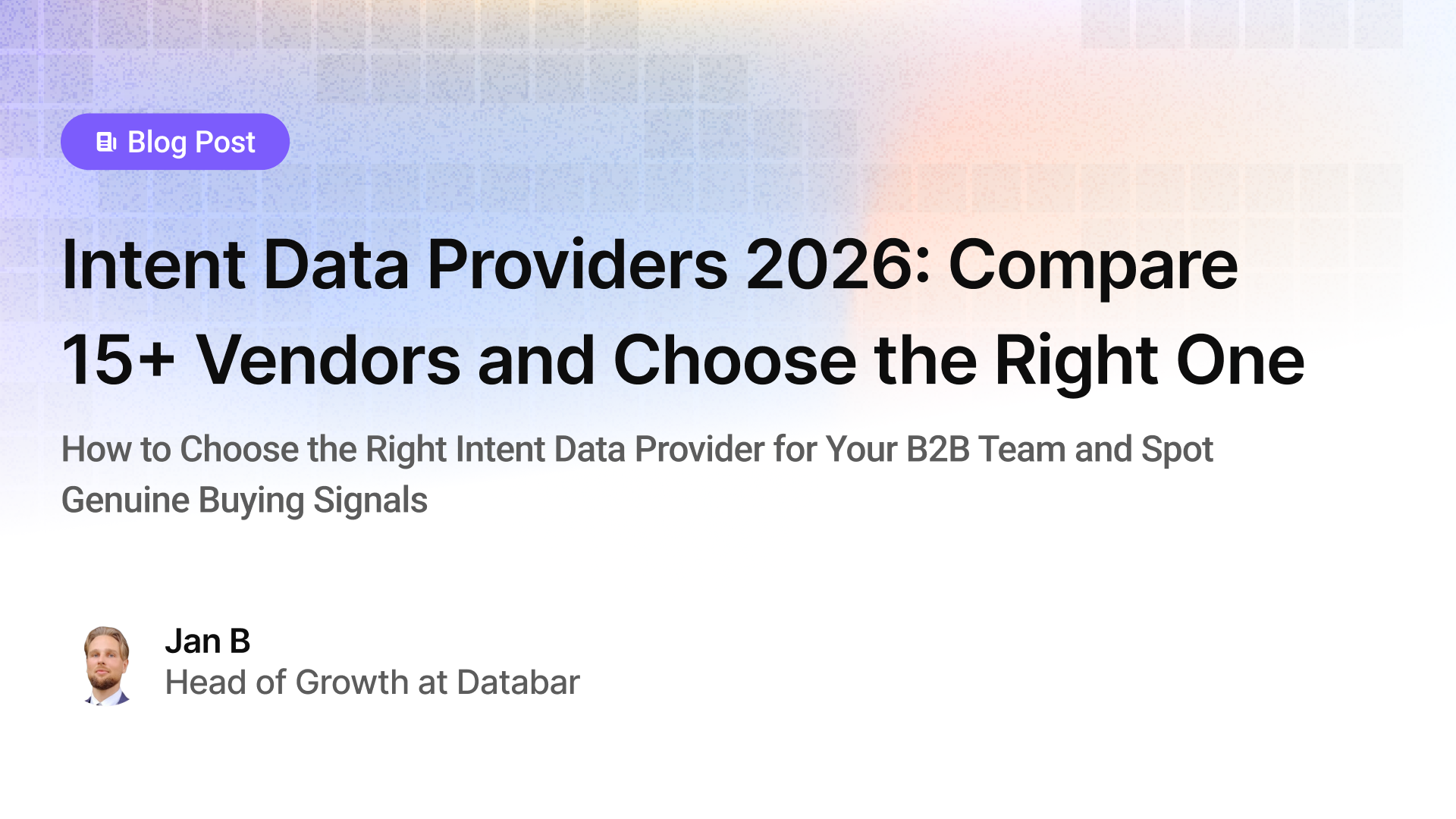
Intent Data Providers 2026: Compare 15+ Vendors and Choose the Right One
How to Choose the Right Intent Data Provider for Your B2B Team and Spot Genuine Buying Signals
by Jan, February 16, 2026
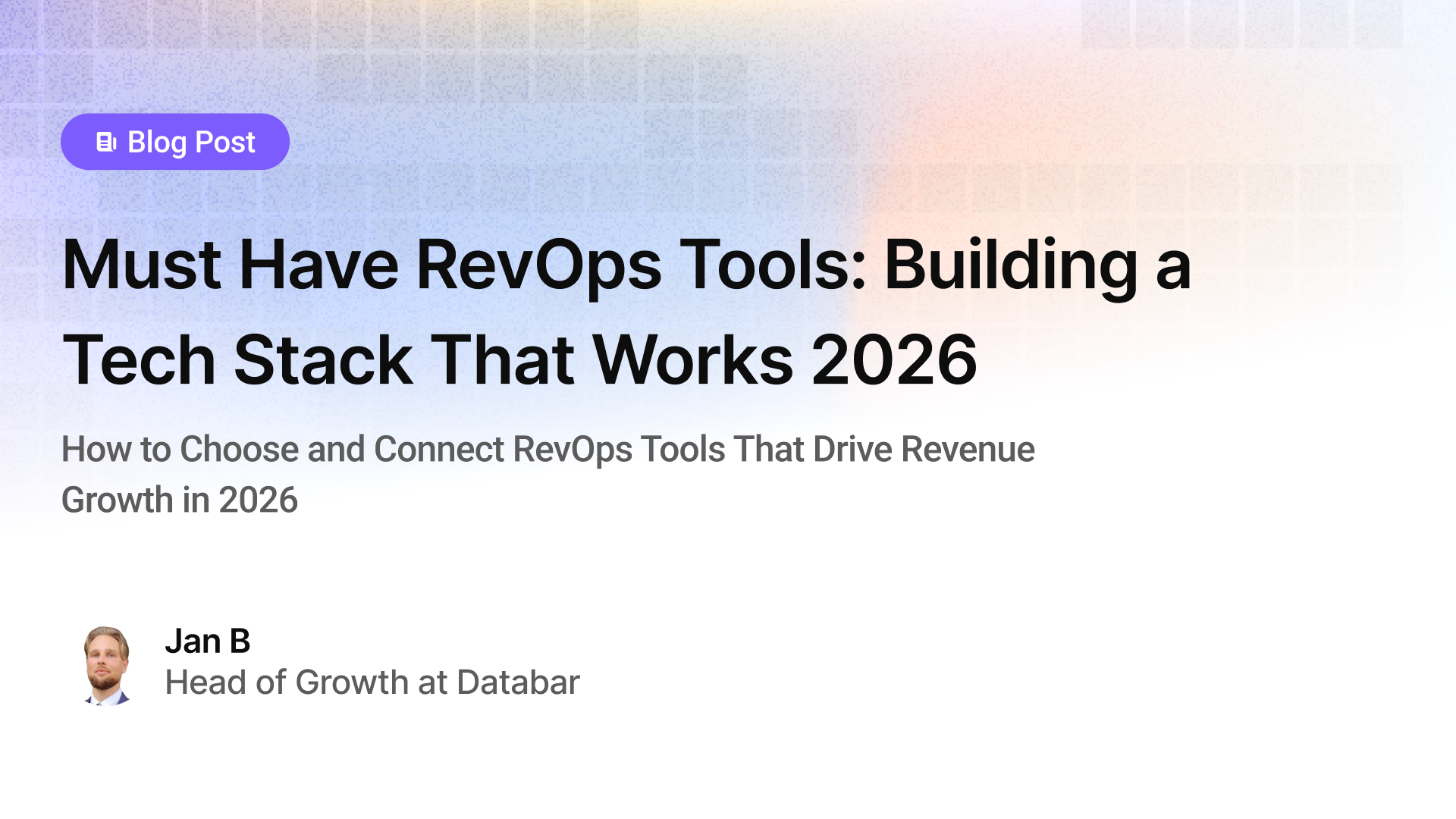
Must Have RevOps Tools: Building a Tech Stack That Works 2026
How to Choose and Connect RevOps Tools That Truly Drive Revenue Growth in 2026
by Jan, February 16, 2026
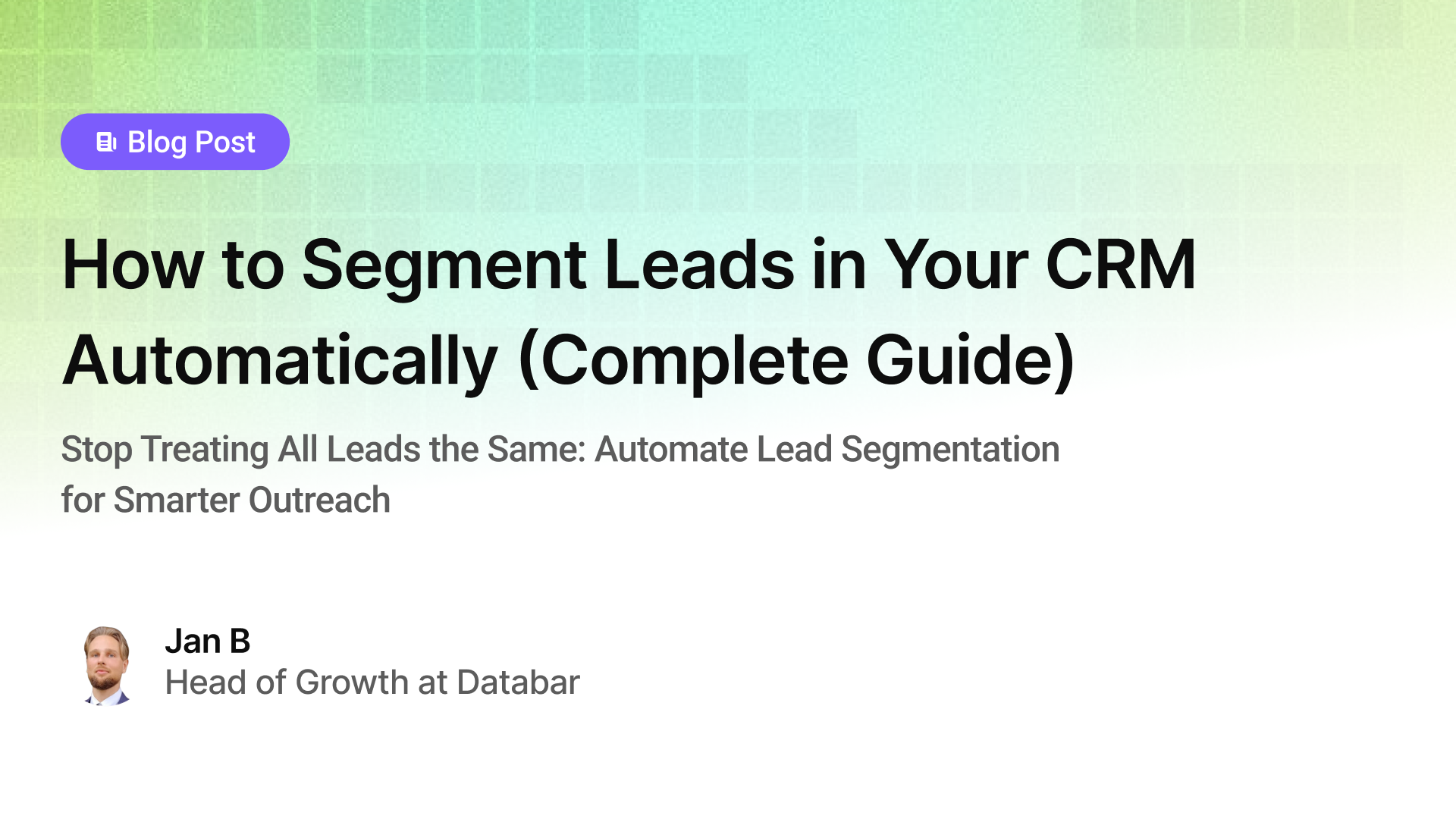
How to Segment Leads in Your CRM Automatically (Complete Guide)
Stop Treating All Leads the Same: Automate Lead Segmentation for Smarter Outreach
by Jan, February 16, 2026
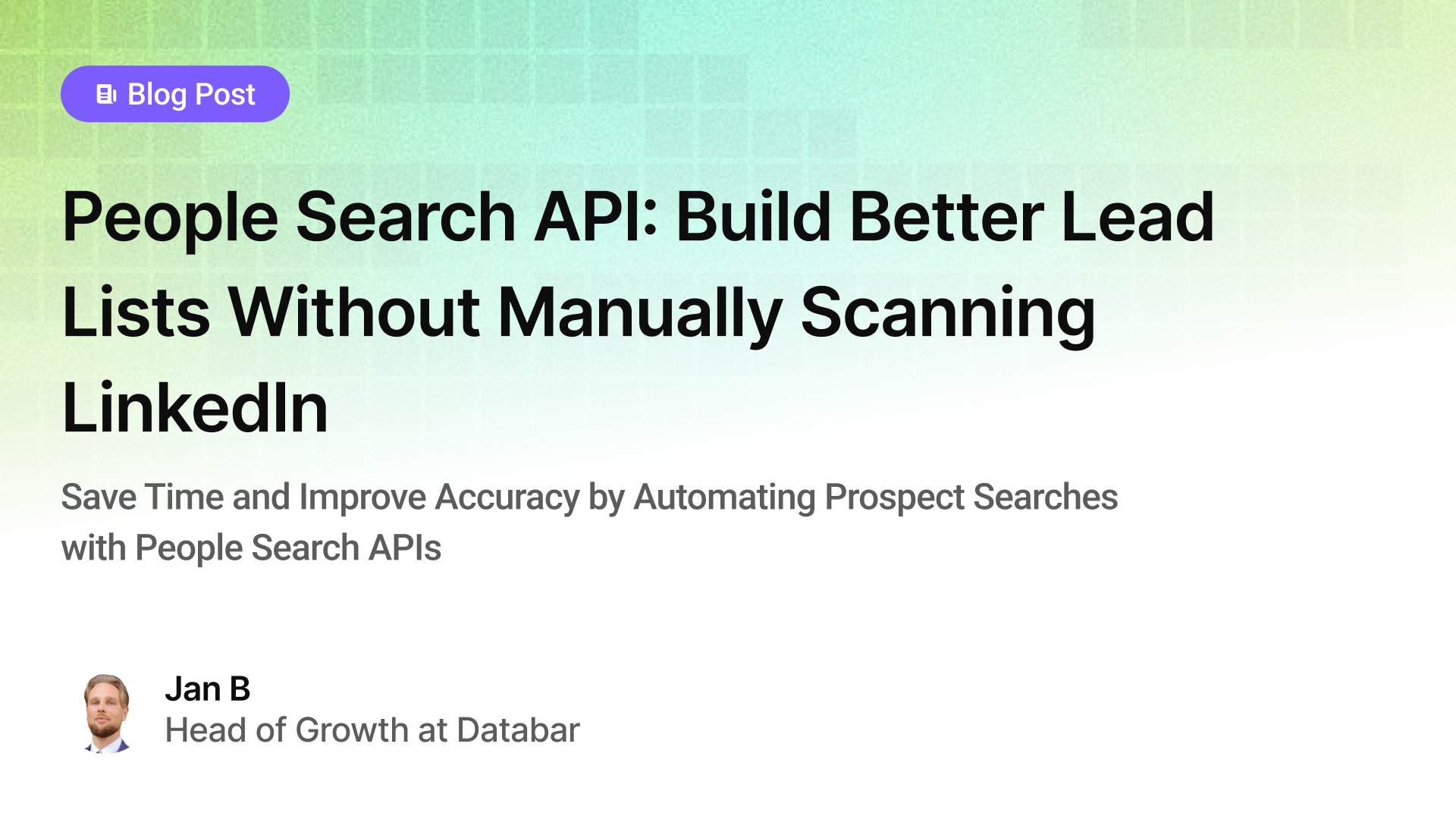
People Search API: Build Better Lead Lists Without Manually Scanning LinkedIn
Save Time and Improve Accuracy by Automating Prospect Searches with People Search APIs
by Jan, February 15, 2026
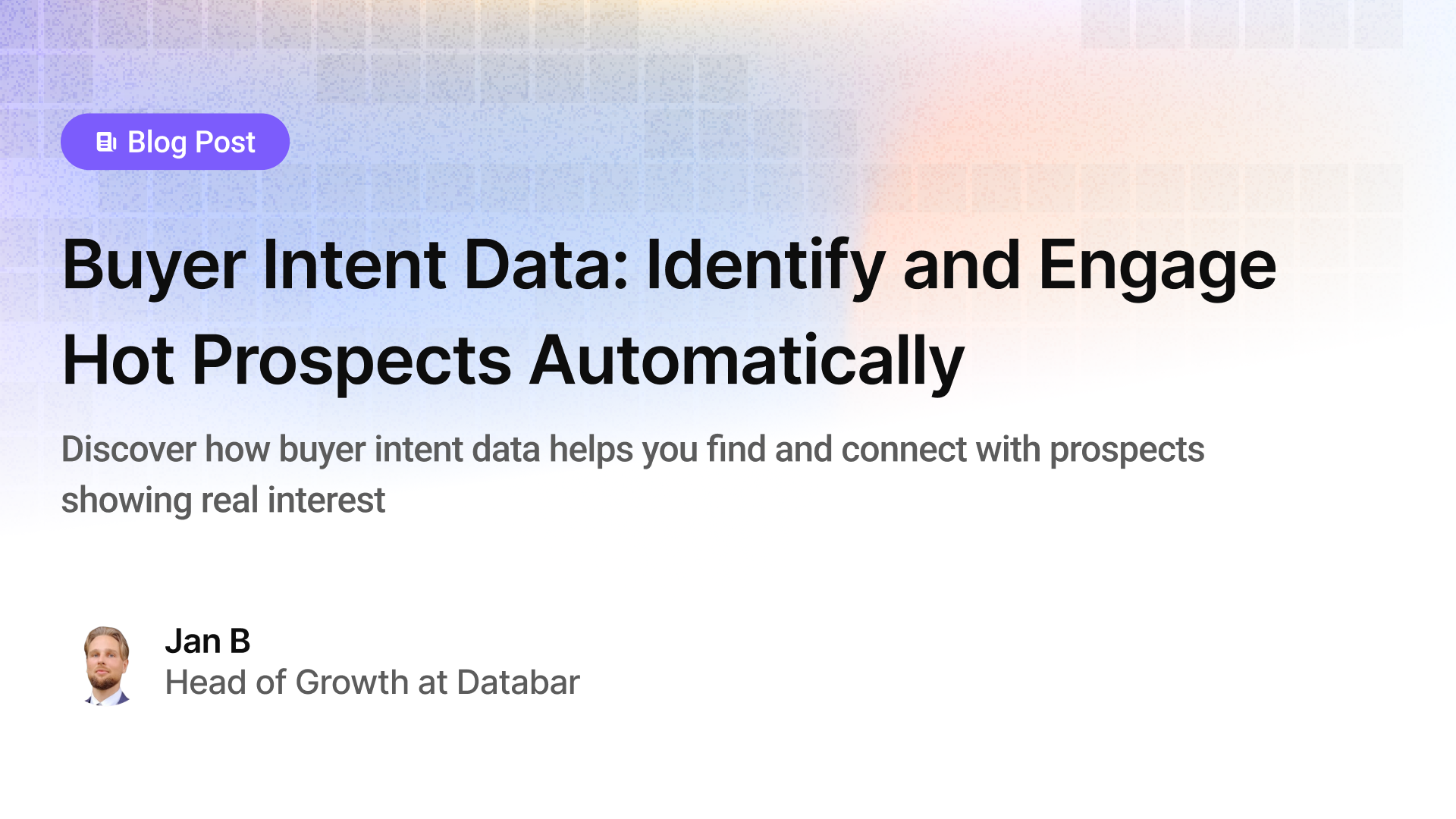
Buyer Intent Data: Identify and Engage Hot Prospects Automatically
Discover how buyer intent data helps you find and connect with prospects showing real interest
by Jan, February 14, 2026
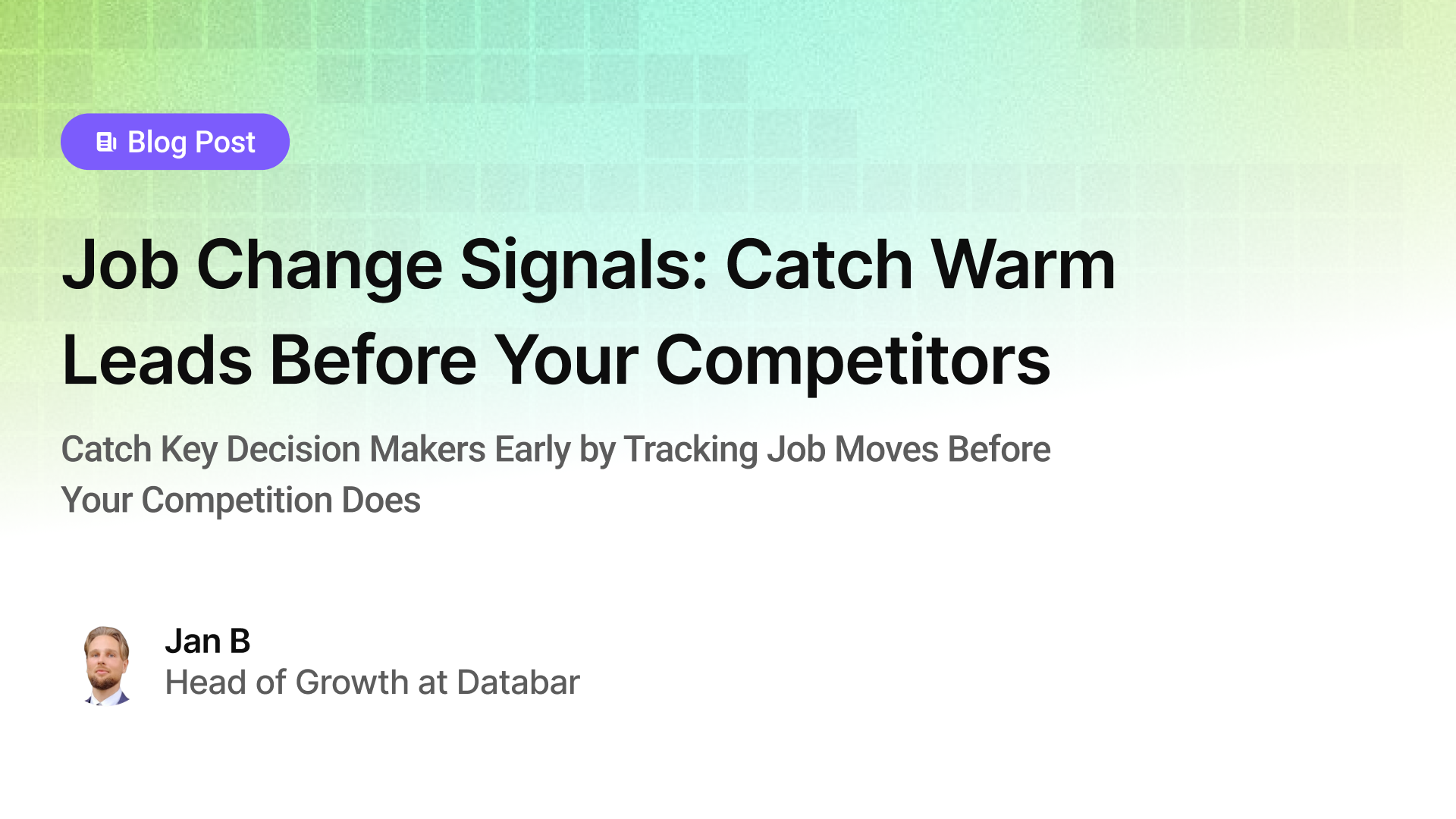
Job Change Signals: Catch Warm Leads Before Your Competitors
Catch Key Decision Makers Early by Tracking Job Moves Before Your Competition Does
by Jan, February 14, 2026
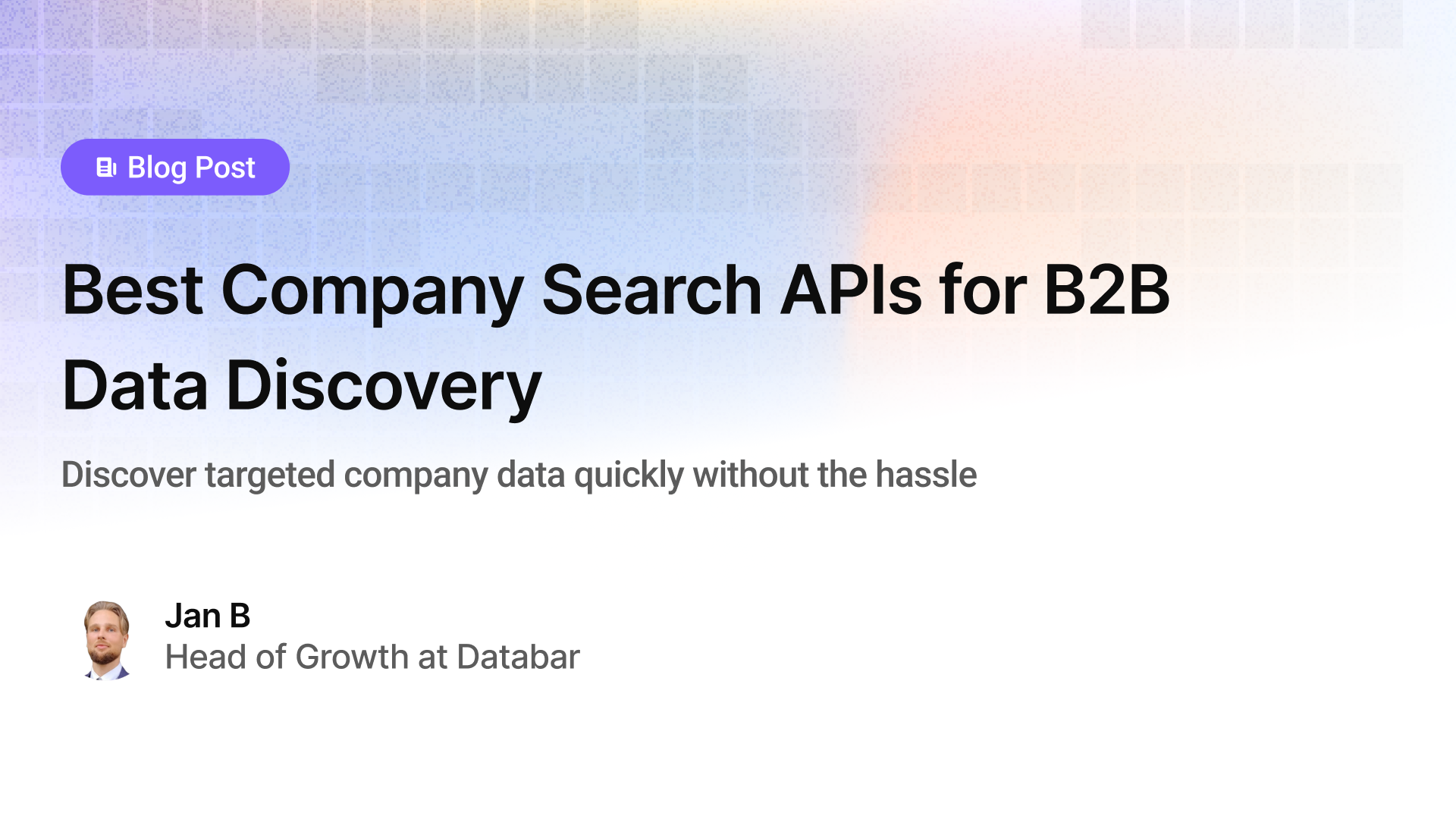
Best Company Search APIs for B2B Data Discovery
Discover targeted company data quickly without the hassle.
by Jan, February 13, 2026
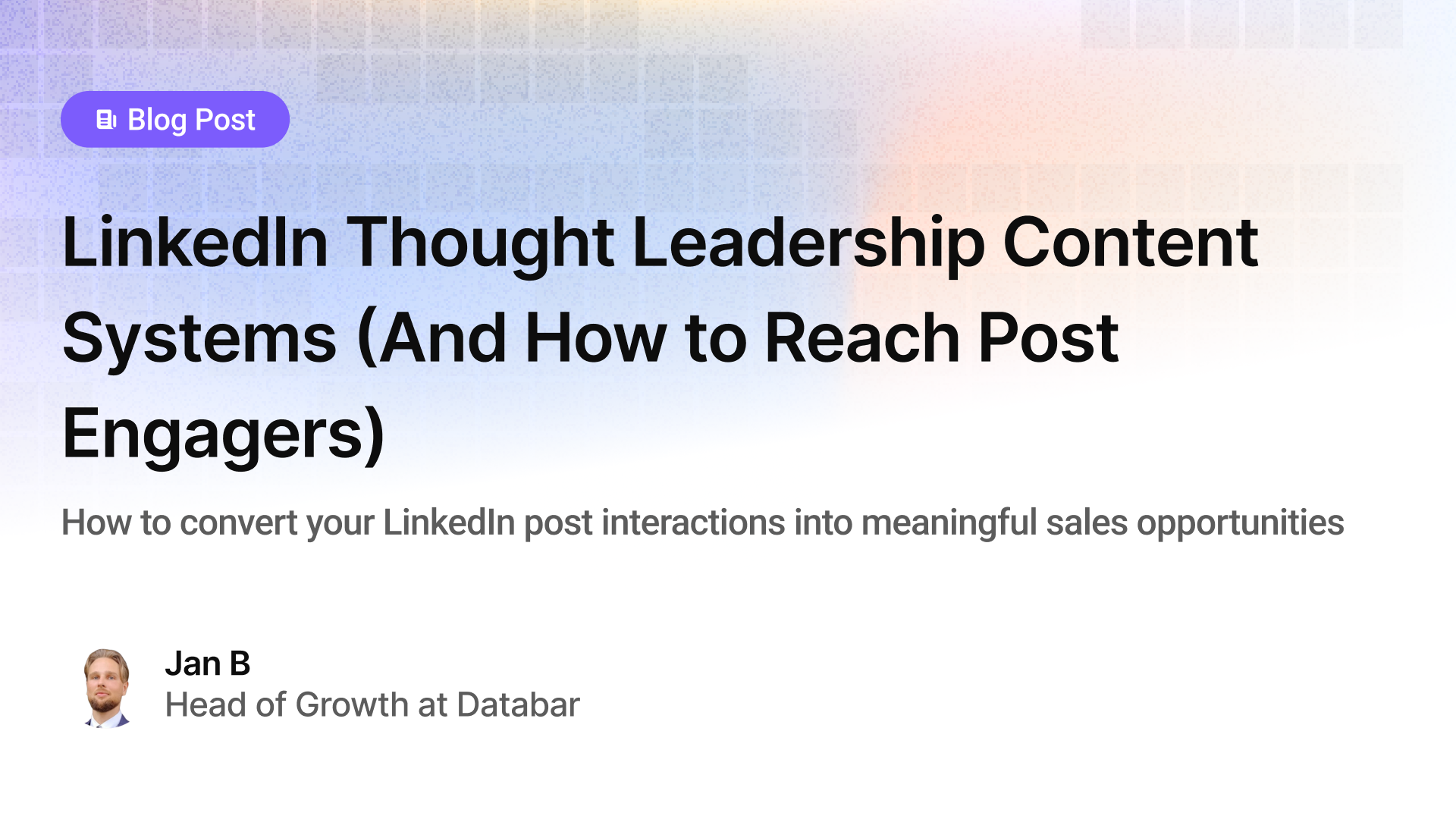
LinkedIn Thought Leadership Content Systems (And How to Reach Post Engagers)
How to convert your LinkedIn post interactions into meaningful sales opportunities
by Jan, February 13, 2026
Best Tools for Tracking Year-Over-Year Headcount Growth
How Tracking Employee Growth Can Indentify New Sales Opportunities
by Jan, February 13, 2026
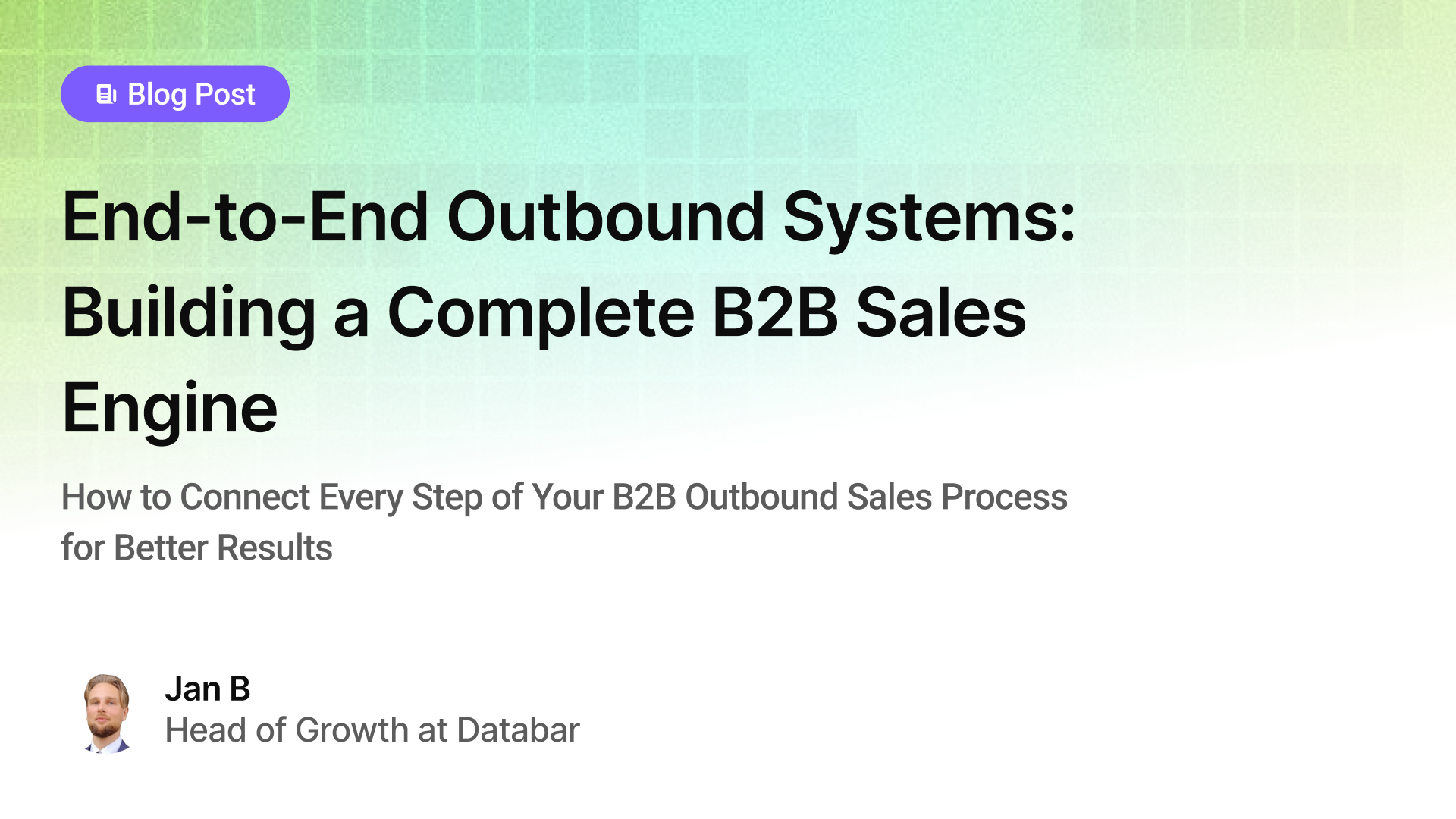
End-to-End Outbound Systems: Building a Complete B2B Sales Engine
How to Connect Every Step of Your B2B Outbound Sales Process for Better Results
by Jan, February 12, 2026
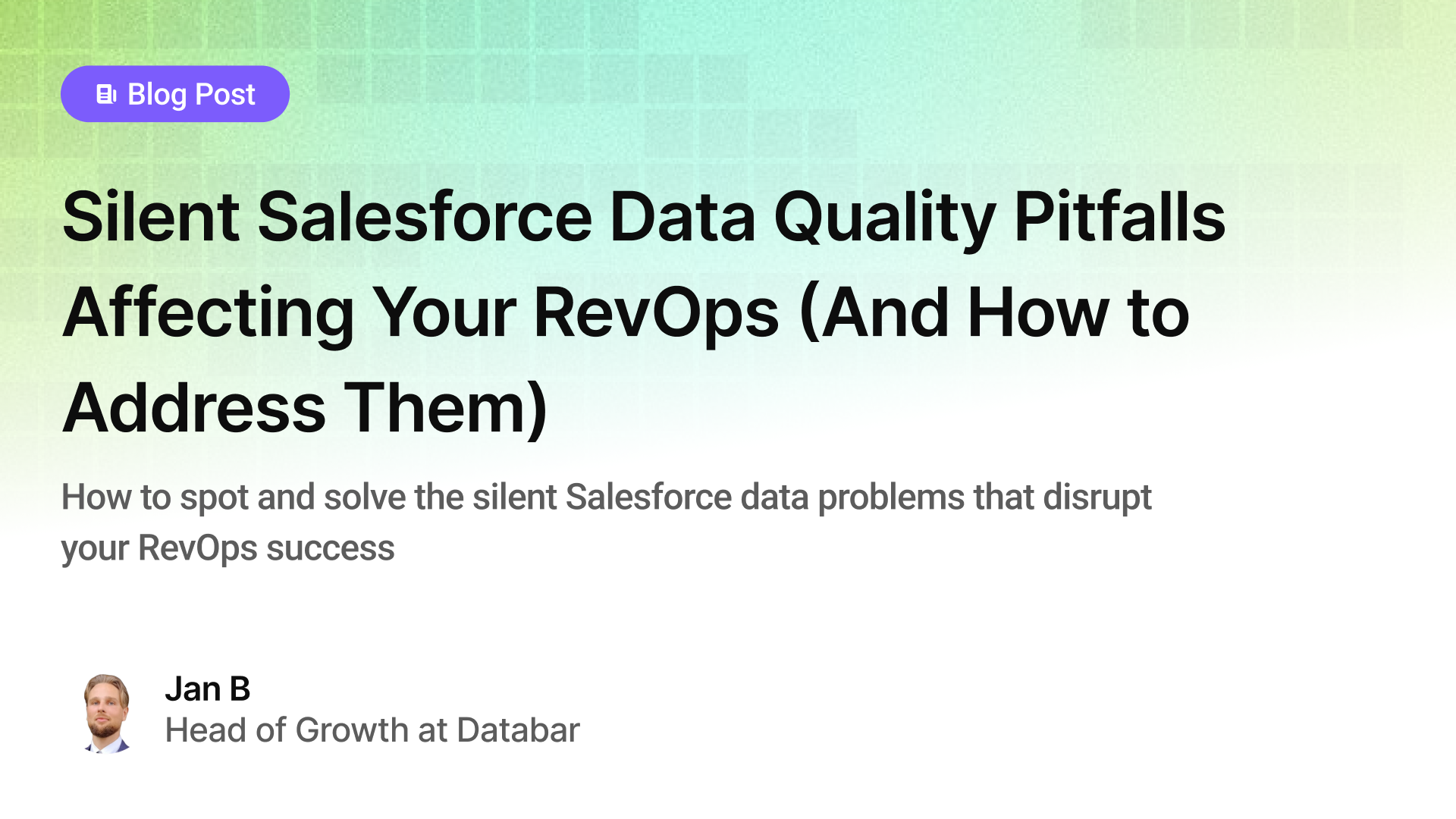
Silent Salesforce Data Quality Pitfalls Affecting Your RevOps (And How to Address Them)
How to spot and solve the silent Salesforce data problems that disrupt your RevOps success
by Jan, February 12, 2026
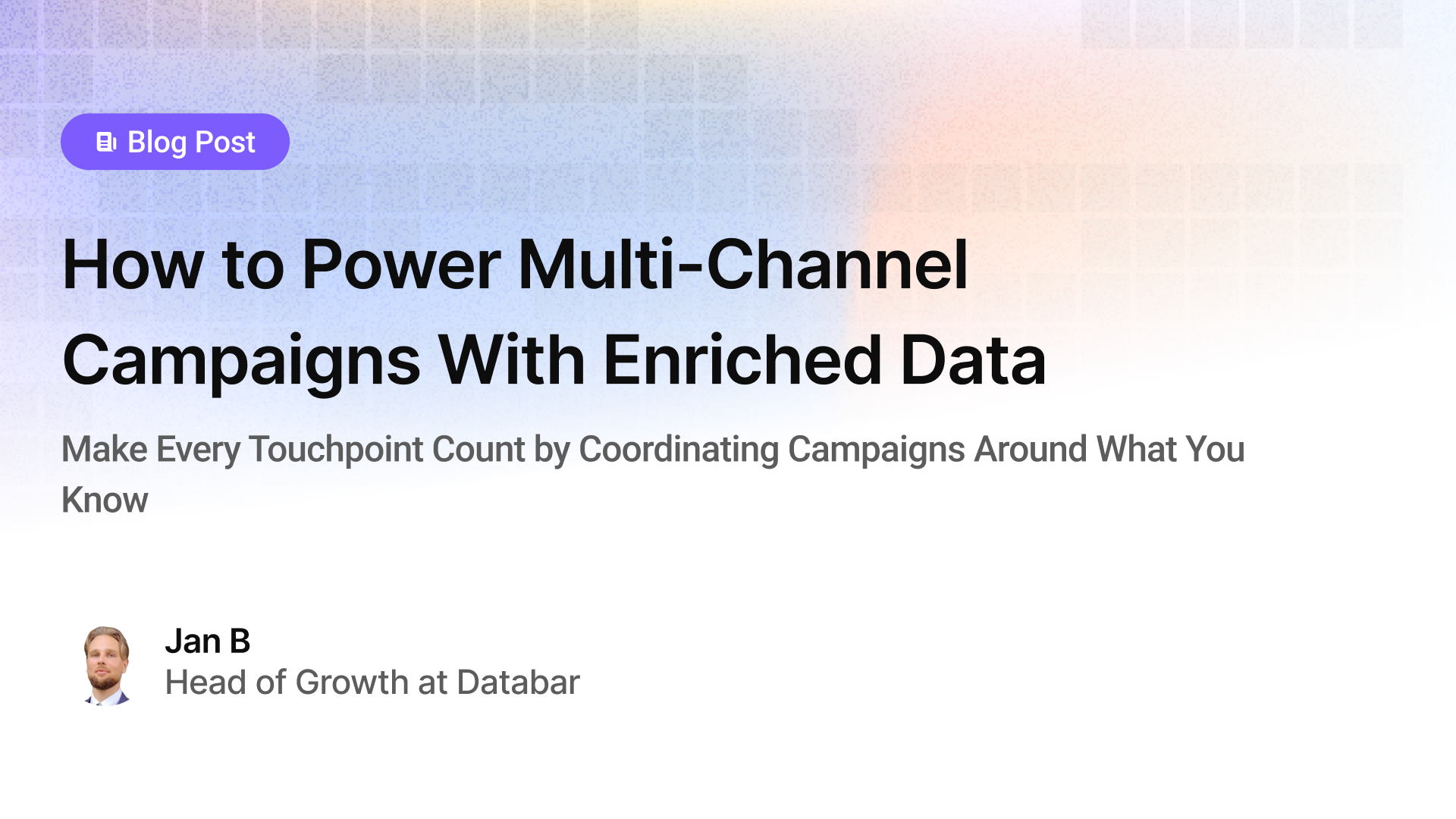
How to Power Multi-Channel Campaigns With Enriched Data
Make Every Touchpoint Count by Coordinating Campaigns Around What You Know
by Jan, February 12, 2026
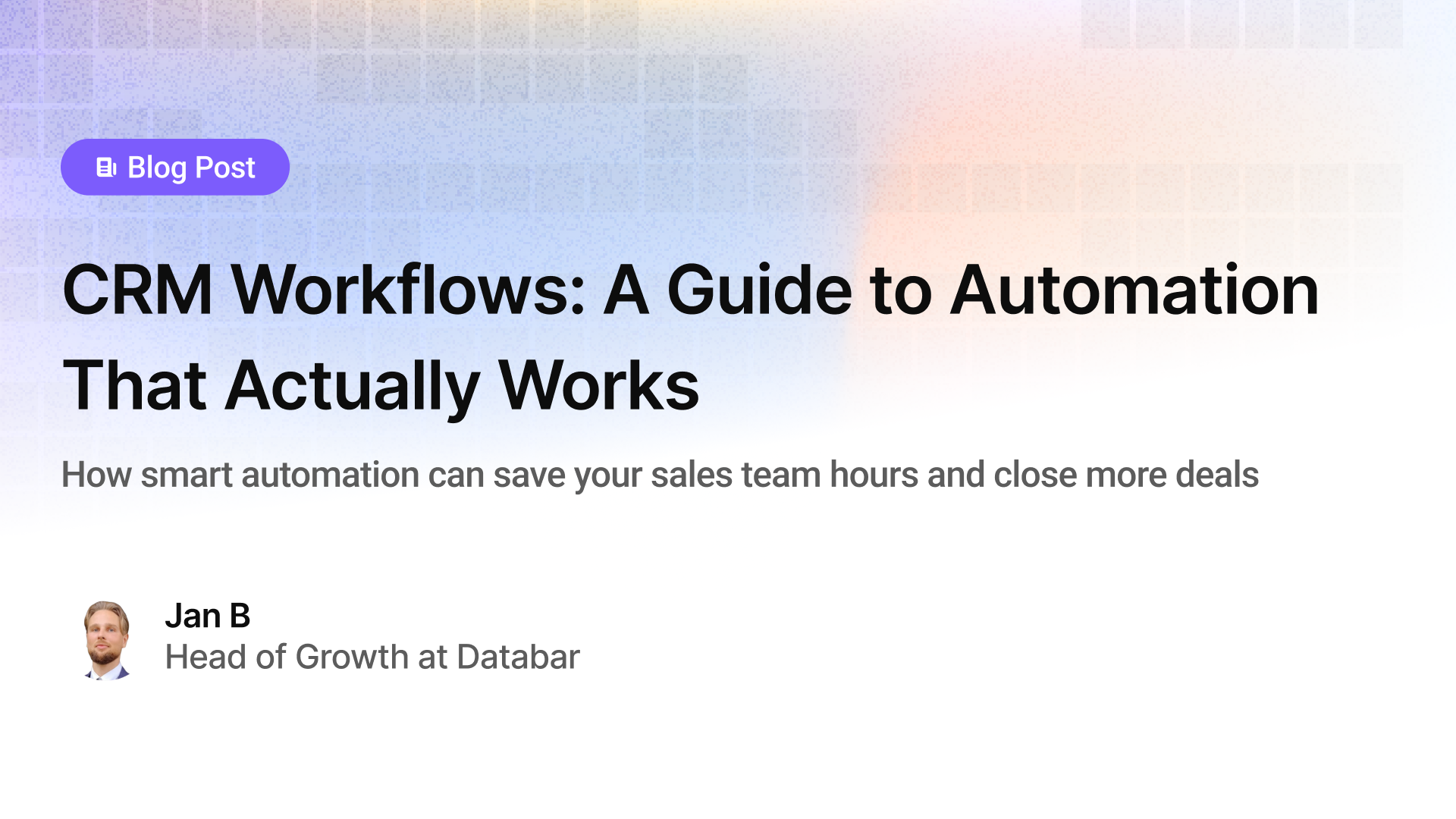
CRM Workflows: The Complete Guide to Automation That Actually Works
How smart automation can save your sales team hours and close more deals
by Jan, February 11, 2026
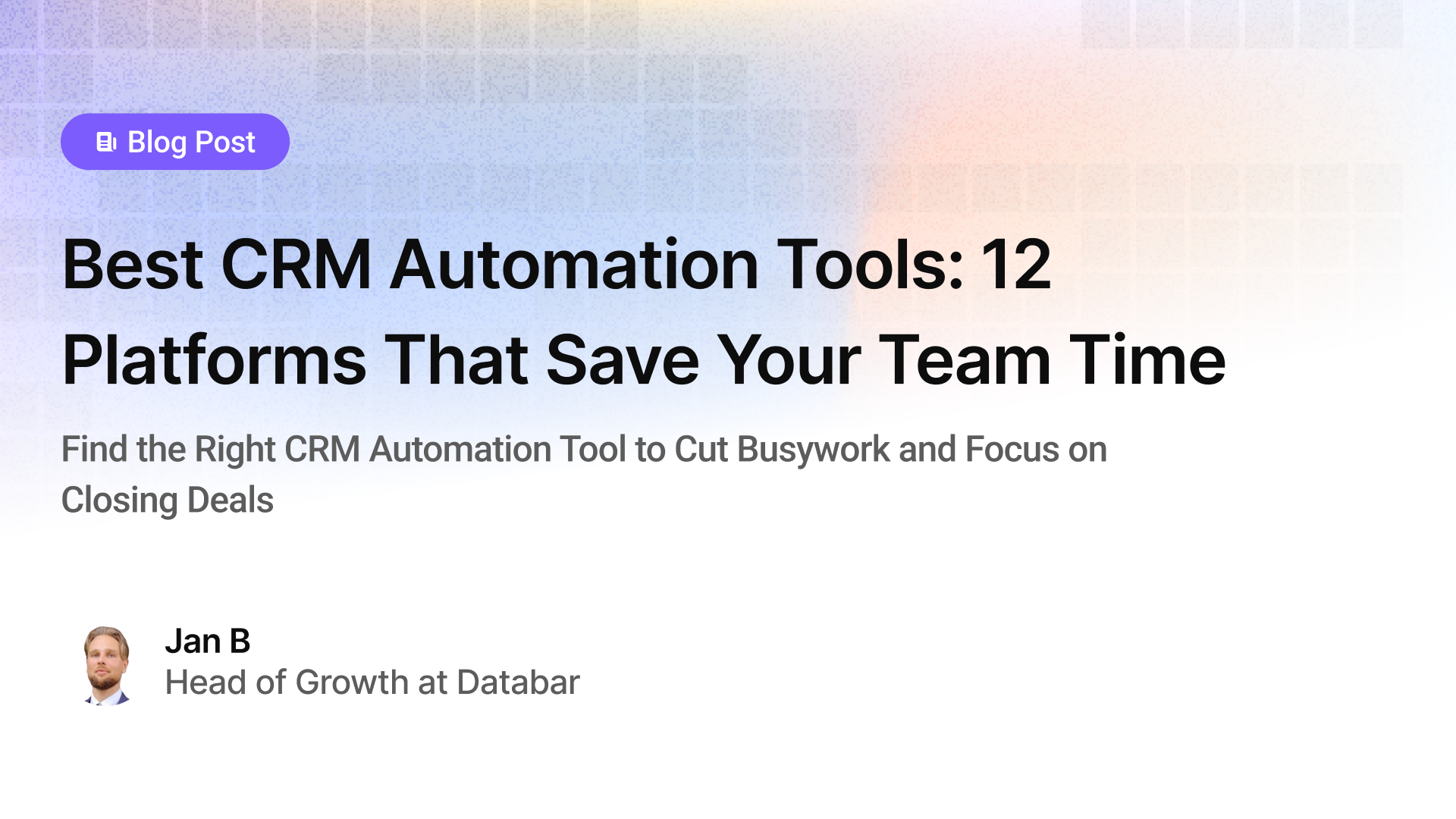
Best CRM Automation Tools: 12 Platforms That Save Your Team Time
Find the Right CRM Automation Tool to Cut Busywork and Focus on Closing Deals
by Jan, February 11, 2026
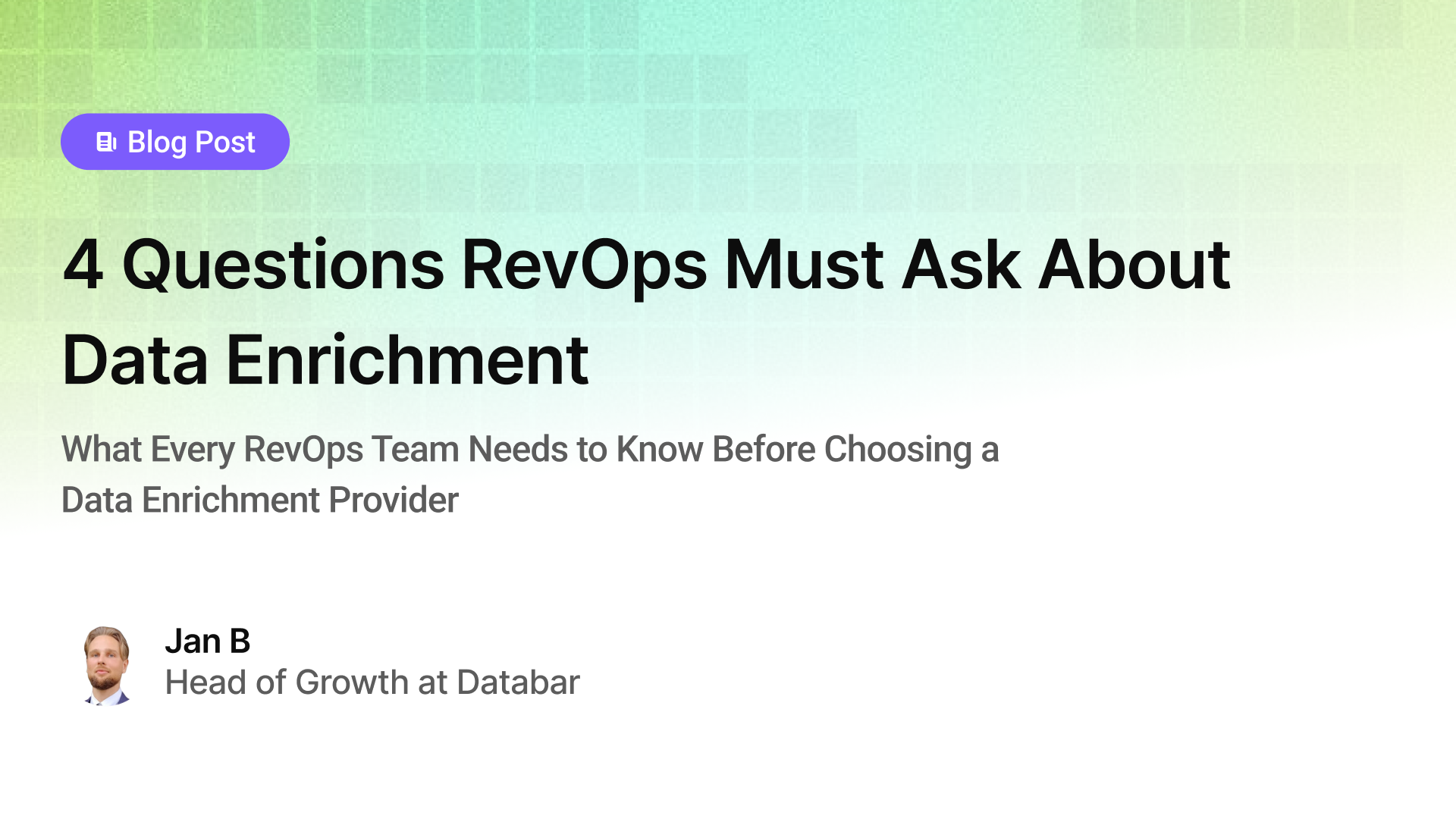
4 Questions RevOps Must Ask About Data Enrichment
What Every RevOps Team Needs to Know Before Choosing a Data Enrichment Provider
by Jan, February 11, 2026
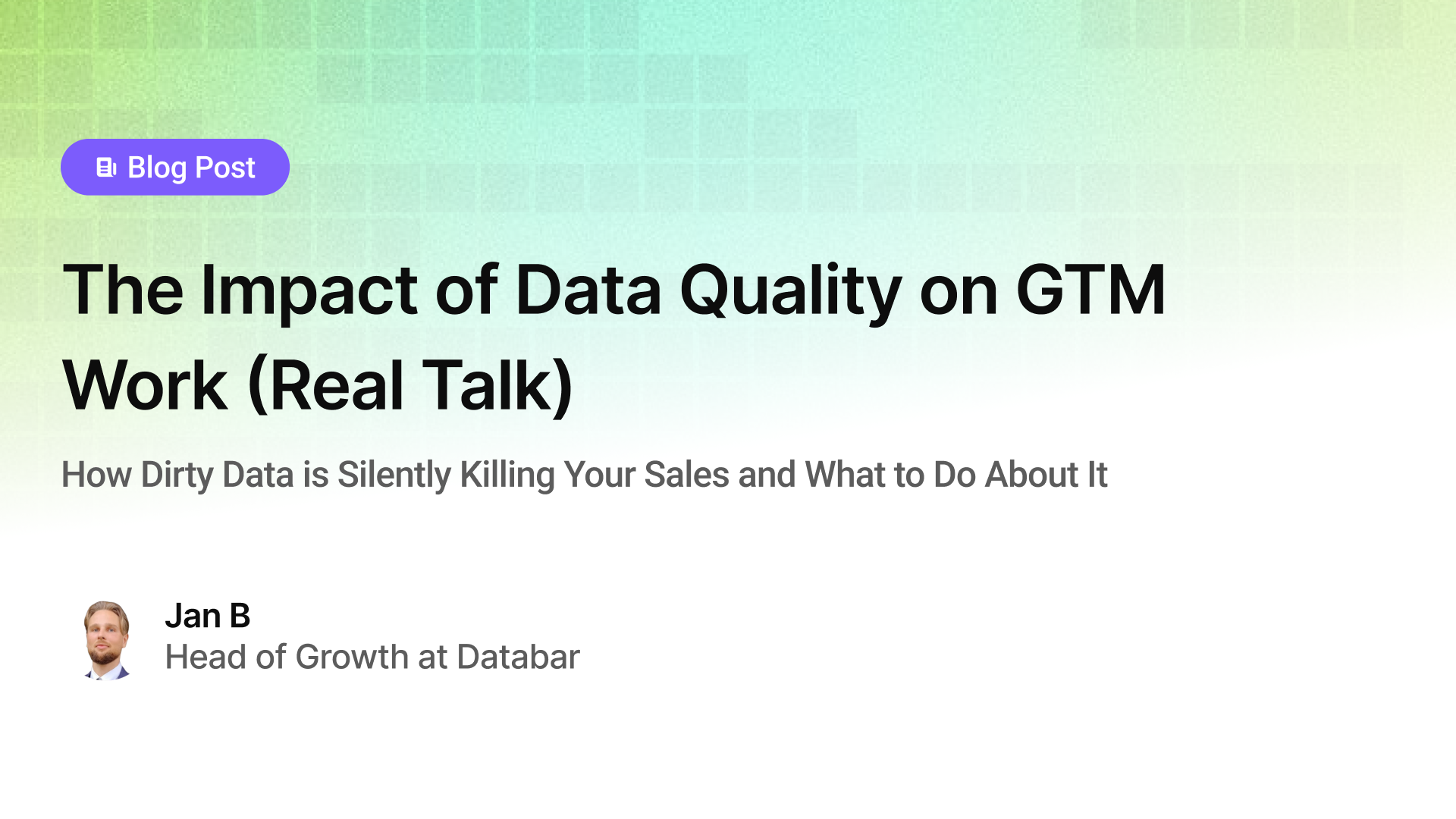
The Impact of Data Quality on GTM Work (Real Talk)
How Dirty Data is Silently Killing Your Sales and What to Do About It
by Jan, February 10, 2026
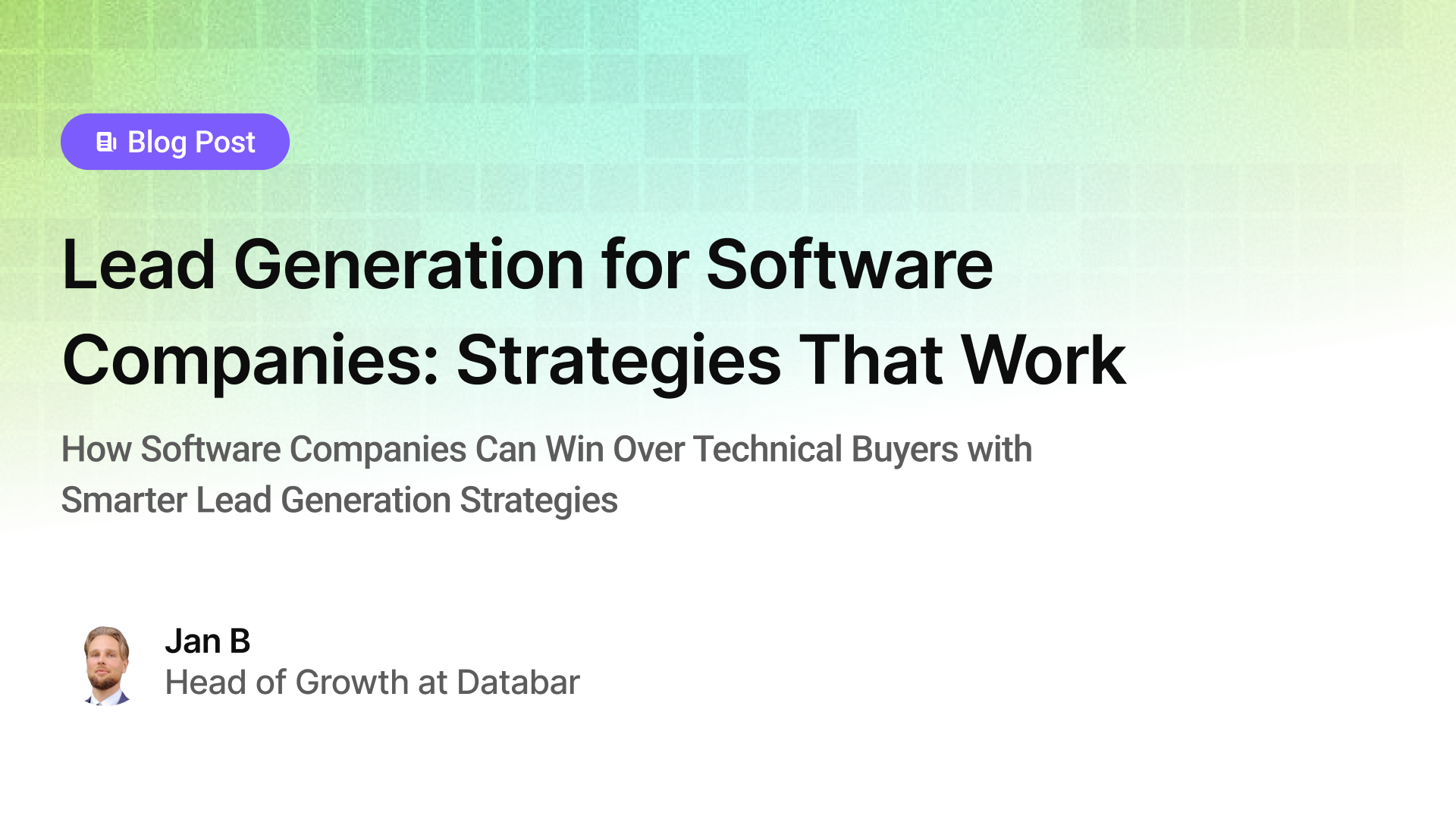
Lead Generation for Software Companies: Strategies That Work
How Software Companies Can Win Over Technical Buyers with Smarter Lead Generation Strategies
by Jan, February 10, 2026
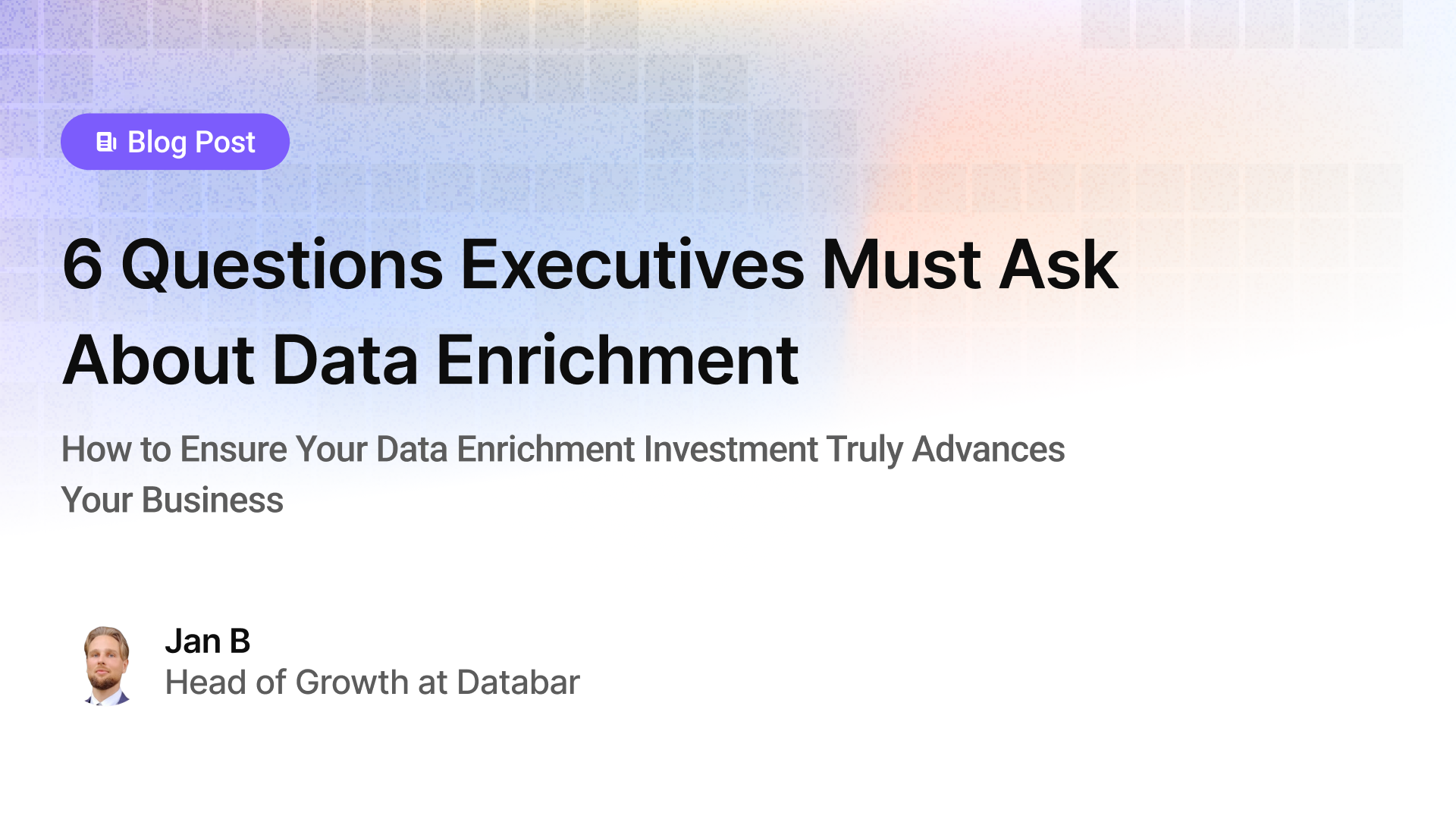
6 Questions Executives Must Ask About Data Enrichment
How to Ensure Your Data Enrichment Investment Truly Advances Your Business
by Jan, February 10, 2026
Get Started with Databar Today
Unlock the full potential of your data with the world's most comprehensive no-code API tool. Whether you're looking to enrich your data, automate workflows, or drive smarter decisions, Databar has you covered.